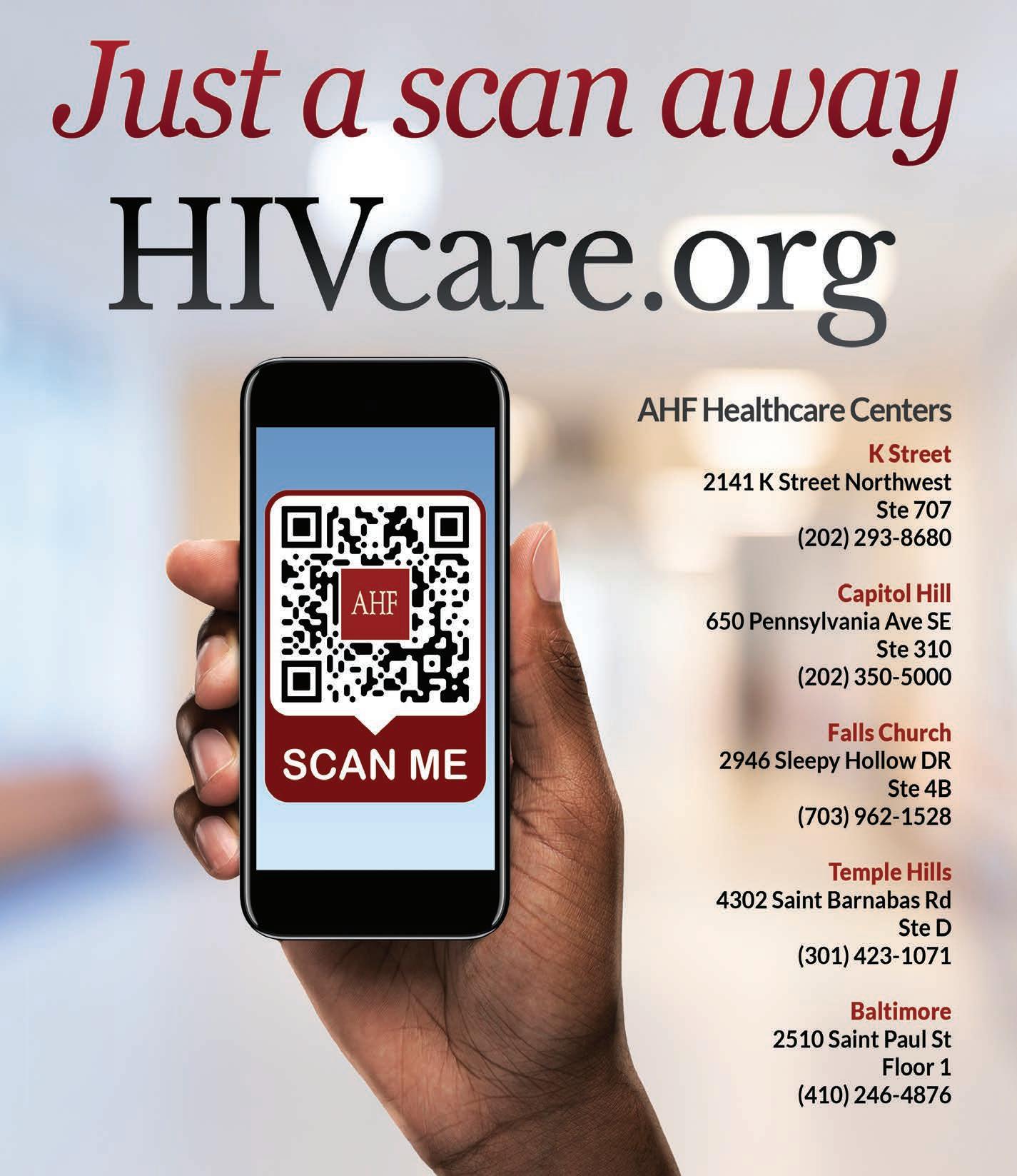

































































































































ADDRESS PO Box 53352

Washington DC 20009
PHONE
202-747-2077
E-MAIL news@washblade.com
INTERNET washingtonblade.com
PUBLISHED BY Brown Naff Pitts Omnimedia, Inc.

PUBLISHER
LYNNE J. BROWN lbrown@washblade.com ext. 8075
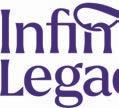
EDITORIAL
EDITOR
KEVIN NAFF knaff@washblade.com ext. 8088 SR. NEWS REPORTER
LOU CHIBBARO JR. lchibbaro@washblade.com ext. 8079


WHITE HOUSE CORRESPONDENT
CHRIS KANE ckane@washblade.com extg 8083
INTERNATIONAL NEWS EDITOR
MICHAEL K. LAVERS mlavers@washblade.com ext. 8093
POP CULTURE REPORTER
JOHN PAUL KING
PHOTO EDITOR
MICHAEL KEY mkey@washblade.com ext 8084
WRITERS
CONTRIBUTING
DANIEL ITAI, EDICIÓN CIENTONCE, QUORUM, WDG, STEPHANIE MONDRAGÓN, ISAAC AMEND , TINASHE CHINGARANDE, DUNIA ORELLANA, REPORTAR SIN MIEDO, PARKER PURIFOY, PETER ROSENSTEIN, MARK LEE, LATEEFAH WILLIAMS, KATE CLINTON, KATHI WOLFE, ERNESTO VALLE, YARIEL VALDÉS GONZÁLEZ, LYNARE ROBBINS, PHILIP VAN SLOOTEN, KATLEGO K. KOLANYANE-KESUPILE, KAELA ROEDER, TREMENDA NOTA, ALBERTO J. VALENTÍN, MAYKEL GONZÁLEZ VIVERO, ORGULLO LGBT. CO, ESTEBAN GUZMAN, ANDRÉS I. JOVÉ RODRÍGUEZ, WINTER HAWK CREATIVE DESIGN/PRODUCTION AZERCREATIVE.COM
SALES & ADMINISTRATION
DIRECTOR OF SALES & MARKETING










STEPHEN RUTGERS srutgers@washblade.com ext. 8077


SR. ACCT. EXECUTIVE BRIAN PITTS
bpitts@washblade.com ext. 8089
CLASSIFIED ADVERTISING/ADMINISTRATION


PHILLIP G. ROCKSTROH prockstroh@washblade.com ext. 8092
NATIONAL ADVERTISING
RIVENDELL MEDIA
212-242-6863; sales@rivendellmedia.com
For distribution, contact Lynne Brown at 202-747-2077, ext. 8075. Distributed by Southwest Distribution Inc.

All material in the Washington Blade is protected by federal copyright law and may not be reproduced without the written consent of the Washington Blade. The sexual orientation of advertisers, photographers, writers and cartoonists published herein is neither inferred nor implied. The appearance of names or pictorial representation does not necessarily indicate the sexual orientation of that person or persons. Although the Washington Blade is supported by many fine advertisers, we cannot accept responsibility for claims made by advertisers. Unsolicited editorial material is accepted by the Washington Blade, but the paper cannot take responsibility for its return. The editors reserve the right to accept, reject or edit any submission. A single copy of the Washington Blade is available from authorized distribution points, to any individual within a 50-mile radius of Washington, D.C. Multiple copies are available from the Washington Blade office only. Call for rates. If you are unable to get to a convenient free distribution point, you may receive a 52-week mailed subscription for $195 per year or $5.00 per single issue. Checks or credit card orders can be sent to Phil Rockstroh at prockstroh@ washblade.com. Postmaster: Send address changes to the Washington Blade, PO BOX 53352 Washington, DC 20009. The Washington Blade is published weekly, on Friday, by Brown Naff Pitts Omnimedia, Inc. Rates for businesses/institutions are $450 per year. Periodical postage paid at Washington, D.C., and additional mailing offices. Editorial positions of the Washington Blade are expressed in editorials and in editors’ notes as determined by the paper’s editors. Other opinions are those of the writers and do not necessarily represent the opinion of the Washington Blade or its staff. To submit a letter or commentary: Letters should be fewer than 400 words; commentaries should be fewer than 750 words. Submissions may be edited for content and length, and must include a name, address and phone number for verification. Send submissions by e-mail to knaff@ washblade.com.


Patrick Wojahn, the gay former mayor of College Park, Md., pleaded guilty in Prince George’s County Circuit Court on Wednesday, Aug. 2, to 140 counts of child pornography related charges as part of a plea agreement offered by prosecutors.
The first indictment against Wojahn came just under four weeks after Prince George’s County police announced on March 2 of this year that they had arrested him on 56 counts of possession and distribution of “child exploitive material.”
transport Wojahn from the jail where he has been held since his arrest on March 2 to the courthouse, located in Upper Marlboro.
PATRICK WOJAHNThe agreement calls for Wojahan, 47, to be sentenced to 150 years in prison, with 120 years to be suspended, requiring that he serve 30 years.
Prince George’s County Assistant State’s Attorney Jessica Garth, the lead prosecutor in the case, announced the terms of the plea agreement during the Circuit Court hearing, which was listed as a plea hearing.
Garth told news reporters after the hearing that under Maryland’s sentencing rules Wojahan will be eligible to apply for release on parole after serving 25 percent of the 30year sentence, which could result in his release after seven and a half years.
She said that under the plea agreement Wojahn will receive a mental health evaluation and treatment while in jail and upon being released; he must register as a Tier Two sex offender upon his release; and he will be prohibited upon release from holding a job or a volunteer position involving children. Garth said the plea agreement calls for Wojahn’s probation to last for five years.
As part of the plea agreement, Wojahn pleaded guilty to each of the 140 counts against him handed down in the second of two grand jury indictments. The 140 counts include 60 counts of distribution of child pornography, 40 counts of possession of child pornography, and 40 counts of possession of child pornography with intent to distribute it.

Shortly before his arrest and just after police raided his College Park house and confiscated multiple cell phones, a storage device, and a tablet and computer, Wojahn released a statement announcing he had resigned from his position as College Park mayor, for which he had served since 2015.
In his statement Wojahn also said he was cooperating with authorities in their investigation into the charges against him.
“I have cooperated fully, and will continue to cooperate fully,” he wrote. “I am stepping away to deal with my own mental health,” he said. “I ask that you continue to keep me and my family in your prayers.”
The initial police charging documents said Wojahn allegedly had uploaded and/or shared at least 56 videos or still images on the social media app Kik depicting explicit sexual acts between adult men and prepubescent boys, depicting prepubescent boys engaging in sex with each other, or engaging in masturbation.
The police charging documents did not include any evidence or allegations that Wojahn had any direct contact with the juveniles depicted in the pornographic videos or still images he possessed or distributed. And the charging documents also did not include allegations that he was distributing the video or still images of child porn by selling them for profit, only that he was allegedly sharing them with others through the Kik app.
The drama surrounding the Aug. 2 court hearing in which Wojahn pleaded guilty was heightened by an announcement by a court clerk that the hearing, scheduled for 1:30 p.m., would be delayed by at least 45 minutes or more because of a mix-up by jail officials who were supposed to
It wasn’t until 3:25 p.m. when a uniformed guard escorted Wojahn into the courtroom while the former mayor was handcuffed and wearing an orange prison jumpsuit.
During the Aug. 2 plea hearing, Judge Karen Mason, who is currently presiding over the case, asked Wojahn to rise from the defense table where he was seated beside his attorney, David Moyse, to answer a series of questions that the judge said must be answered to confirm that he has willingly and knowingly chosen to waive his right to a trial and to plead guilty to all charges.
As part of her questioning, Mason read each of the 140 indictment counts, including their allegations of possession or distribution of child pornography, asking Wojahn if he understands the impact of his guilty plea.
“Yes, your honor,” Wojahn replied repeatedly.
Assistant State’s Attorney Garth told reporters after the hearing that the 30-year sentence called for in the plea agreement is one of the most severe sentences handed down in a Prince George’s County court for a case like the one involving Wojahn.
Judge Mason scheduled a formal sentencing hearing in the Wojahn case for Nov. 20, 2023. Garth said the judge has indicated that she will accept the terms of the plea agreement, including the 30-year sentence with eligibility for parole at 7 and a half years.
Defense attorney Moyse said after the hearing that he prefers not to comment on the plea agreement or the status of the case at this time.
“This is a horrific case,” P.G. County State’s Attorney Aisha Braveboy said in a statement released after the court hearing. “I am truly pleased that Mr. Wojahn has pled guilty and accepted responsibility for his actions and these horrendous crimes,” Braveboy said.
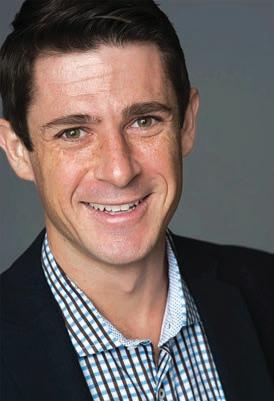 By PETER ROSENSTEIN
By PETER ROSENSTEIN
The Comings & Goings column is about sharing the professional successes of our community. We want to recognize those landing new jobs, new clients for their business, joining boards of organizations and other achievements. Please share your successes with us at: comingsandgoings@washblade.com
Congratulations to Chase Cormier Maggiano on his appointment to the D.C. Commission on the Arts and Humanities He is an arts leader with a diverse background in nonprofit management, entrepreneurship, and music. He is board chair of the non-profit Sound Impact, and is an expert luthier. As a luthier specializing in the repair and restoration of fine bows of the violin family, Cormier Maggiano serves professional musicians at the highest level through his company, Washington Fine Bows. He has previously served as Manager of Sales Operations and Marketing, Potter Violins. Cormier Maggiano has extensive experience in nonprofit arts management. He was Executive Director of the Gay Men’s Chorus of Washington, D.C., and The Washington Chorus, where he oversaw the strategic and operational as-
pects of these award-winning organizations. He has been an advocate for LGBTQ rights, gender parity, criminal justice victims, and racial equity. As Board Chair of Sound Impact and Advisory Board Member of Coalition for African Americans in the Performing Arts, he is dedicated to shaping the social and artistic fabric of the community. He produced the first-ever LGBTQ rights concert tour in Cuba and a subsequent concert tour in Ukraine. He also founded BravoScore, a startup aimed at revolutionizing the search for performing arts events and connecting local artists with audiences in a personalized and inclusive manner.
Congratulations also to Christiane Cordero, Daric L. Cottingham, HannahSchoenbaum, Salgu Wissmath, and Sarah Youngblood Gregory, recipients of the 2023 Curve Award for Emerging Journalists. The awards were announced by NLGJA: The Association for LGBTQ+ Journalists and The Curve Foundation.
The award, sponsored by the Curve Foundation, provides financial support to emerging journalists whose work fosters fair and accurate coverage and elevates the voices
of LGBTQ women, trans, and nonbinary people. NLGJA
Executive Director Adam Pawlus said, “We are immensely proud to honor these exceptional recipients who are shaping the future of LGBTQ+ journalism. As we celebrate their achievements, we also look forward to the continued impact they will undoubtedly bring to the field, inspiring an emerging generation of journalists to fearlessly tell the stories that matter most.” The Curve Award for Emerging Journalists includes a $5,000 cash award and access to unique professional development opportunities.







Gay D.C. attorney Nicholas Harrison, a longtime member of the U.S. Army National Guard, was officially commissioned as a First Lieutenant in the D.C. Army National Guard at an Aug. 5 ceremony.

The ceremony at the D.C. National Guard Armory located next to RFK Stadium took place a little over a year after Harrison, who was diagnosed with HIV in 2012, successfully challenged the military’s longstanding policy of banning soldiers with HIV from becoming commissioned officers in a lawsuit initially filed in 2018.
In what LGBTQ and AIDS activists consider a landmark ruling, the U.S. District Court for the Eastern District of Virginia handed down a decision in April 2022 declaring the military’s HIV restrictions unconstitutional. The decision ordered the U.S. Department of Defense to discontinue its policy of refusing to deploy and commission as officers members of the military with HIV if they are asymptomatic and otherwise physically capable of serving.
Two months after that ruling, the Biden administration announced it would not contest the court ruling in an appeal, and a short time later U.S. Secretary of Defense Lloyd Austin issued a memorandum announcing changes in the military policy that would allow members of the military with HIV to be deployed and become officers in accordance with the court ruling.
The memorandum states that individuals “who have been identified as HIV positive, are asymptomatic, and who have clinically confirmed undetectable viral load will have no restrictions applied to their deployability or to their ability to commission while a service member solely on the basis of their HIV-positive status.”
Kevin Jennings, CEO of Lambda Legal, the LGBTQ litigation organization that represented Harrison in his lawsuit and who attended Harrison’s commissioning ceremony, called the court ruling and the Biden administration’s decision not to appeal the ruling an important advancement in efforts to remove barriers to people with HIV who wish to serve in the military.
“Today is a historic day in Washington, D.C., as we witness the commissioning of Nick Harrison,” Jennings and Lambda Legal Senior Attorney Kara Ingelhart said in a statement. “Although the journey to wearing his officer’s bars took several years, Nick’s perseverance, along with his legal team and other involved service members, helped to realize his dream of becoming an officer in the District of Columbia Army National Guard,” Jennings and Ingelhart said.
Among the more than 50 people who attended Harrison’s commissioning ceremony were family members, friends, LGBTQ rights advocates, and fellow service members.
Serving as master of ceremonies at the event was Dr. Joshua Fontanez, chair of the board for the Modern Military Association of America, the nation’s largest organization representing LGBTQ military service members, their spouses, family members, and veterans. The association joined Lambda Legal in supporting Harrison’s lawsuit to overturn the military’s HIV policy.
Donald Cravins Jr., the U.S. Under Secretary of Commerce for Minority Business Development, administered the oath of office commissioning Harrison to the rank of
First Lieutenant.
And Jennings of Lambda Legal and Baraq Stein, Harrison’s partner, performed the ceremonial “Pinning of Rank” by attaching the lieutenant’s rank insignia on each side of the shoulder of the Army uniform that Harrison was wearing at the ceremony.
“This commissioning ceremony, steeped in long-standing military tradition, is intentionally focused on honoring the network of support and inspiration that brought me to this juncture,” Harrison said in remarks following his official commissioning.
“My own path has been far from conventional, leading me into the heart of a storm that allowed me to become part of a larger narrative – challenging the military’s discriminatory HIV policies through a landmark court case brought by Lambda Legal and the Modern Military Association of America,” he said.
D.C. in July 2013,” he says in his statement.
In October of 2013, he transferred his National Guard membership from Oklahoma to D.C. by joining the D.C. National Guard, where he was assigned to a military police company with the rank of sergeant, he said. During that same year, he was selected for a Judge Advocate General position, which involves duties similar to a civilian judge.
Having been diagnosed with HIV the previous year, he requested a waiver from the military’s HIV policy that would have allowed him to take on his new JAG position. But his request was turned down, prompting him to initiate a campaign to challenge what he and many others believed to be an outdated policy denying fully capable people with HIV from serving in positions as military officers.
A short time later, through support from Lambda Legal and an organization that later became the Modern Military Association of America, he filed his lawsuit challenging the military’s HIV policy that has led to what his supporters are calling the landmark event on Aug. 5 during which he became a commissioned officer.
Harrison, however, said the Army has interpreted the changed HIV rules in a way that has forced him to take his case once again to court to challenge a decision by Army officials to have him reapply to join the National Guard under the new policy rather than commission him as an officer retroactively based on his 23 years of military service.
Having to reapply, Harrison told the Washington Blade, would require him to serve in the National Guard for another eight years, even though he became eligible to retire in 2020. He has contested the decision to require him to reapply before the same court that overturned the military’s discriminatory HIV policy and before the Army Board for the Correction of Military Records, which he says has the authority to “rectify” the Army’s position on reenlistment.
A native of Oklahoma, Harrison joined the U.S. Army in September 2000 at the age of 23, at the time he was about to enter his third year as a student at the University of Central Oklahoma. He said he served for three years as an airborne paratrooper with a Parachute Infantry Regiment in Anchorage, Alaska.
After completing his initial enlistment in the Army, he resumed his university studies while joining the Oklahoma National Guard. He graduated in May 2005 with a bachelor’s degree and “proceeded to Oklahoma City University’s law school,” he told the Blade in a statement.
In March 2006, while enrolled in law school, he was deployed to Afghanistan with the Oklahoma National Guard’s 45th Infantry Division, he recounted in his statement. Upon his return, he said he had to restart his law school studies at the University of Oklahoma in August 2007.
After receiving a law degree and Master of Business Administration degree he was deployed once again, this time to Kuwait and Iraq. “On my return, I passed the bar and began job hunting, which led me to Washington,
Jennings of Lambda Legal said at Harrison’s commissioning ceremony that Harrison’s ongoing dispute with military officials indicates that some details related to Harrison’s case must still be worked out.
“But today we really should just celebrate Nick’s perseverance,” Jennings told the Blade. “His determination, and the fact that he has made history has paved the way for thousands of people.”
In his remarks following his commissioning, Harrison said among the lessons he has learned in his many years in the military is the need to be respectful of the military as an institution and to engage in “respectful disagreement” when at odds with others.
“When I chose to don the uniform, to become part of an institution that has had its share of failures, it was not a decision made lightly,” he said. “I embarked on this journey because I believe in the potential for change from within, in the power of standing up from within a marginalized community to serve, protect, and defend a nation that doesn’t always reciprocate in kind,” he told the gathering.
Harrison currently serves as managing partner for the downtown D.C. law firm Harrison-Stein.














(Editor’s note: This article contains references to suicide and self-harm. If you are having thoughts of suicide or are in crisis, call 988 to talk to a counselor or 911 for medical attention.)
He was cutting himself and his mother was worried.
Whom should she call? Who could help her son John, who is gay, and doesn’t have an accepting community in Asheville, N.C.? She asked around. Trevor Project, one person said. Trevor Project, another said. Trevor Project. Trevor Project. Reach out to the Trevor Project, the world’s largest nonprofit assisting LGBTQ+ youth.
Phone service, his mother Darlene Coleman said, is unreliable in the town so she selected “chat” on the organization’s homepage, hoping to talk to a counselor.
She waited. And waited. For five minutes, then 10, 15, 40, and 47 minutes. No one answered. The website warned her that hold times were longer than usual. But this long? It had taken her forever to convince John, who asked for his name to be changed for fear of backlash, to even talk to someone. This wasn’t helping.
She checked back later that day. And waited on hold. And waited some more. She gave up, then tried the hotline the next day. Again she waited and waited until eventually giving up.
What, she wondered, was going on at the Trevor Project? How could the organization dedicated to preventing LGBTQ+ youth suicide not help her son? Coleman reached out to several other organizations before getting help from the Rainbow Youth Project, but the question still haunts her: What if someone wasn’t as determined as she was? What if someone in crisis didn’t want to wait around for hours to talk to someone?
Her son looked at her and said, “They really don’t give a damn if I’m here or not.”
“I’ll never forget that as long as I live,” Coleman said, tearing up.
Her experience isn’t an anomaly. Josh Weaver, who was Trevor’s vice president of marketing until November 2022, said the average wait times to talk to a Trevor counselor are about three minutes. But during nights and weekends, they said, wait times often exceed 30 minutes. Another employee confirmed that wait times could stretch anywhere from 30 minutes to a couple of hours during peak periods.
“That could be life or death,” Weaver said.
The Human Rights Campaign has issued a state of emergency for LGBTQ+ people in the United States. Legislators around the country introduced and passed a record 75 anti-LGBTQ+ bills just eight months into 2023.
The stakes could not be higher. A Trevor Project study found that close to half of LGBTQ youth considered suicide in 2022. But when those LGBTQ youth were surrounded by communities supportive of their identity, the study found, the rate of attempted suicide dropped dramatically.
In 2022, Trevor’s phone and chat lines supported a record number of people, more than 236,000, through calls, texts, and online chats, according to the organization’s 2022 annual report. And the organization has been rapidly expanding, seeking to help more and more youth.
But in interviews, 11 current and former Trevor employees, many speaking to the Blade anonymously for fear of retaliation, said that growth was much too fast and came at the cost of service.
Former CEO Amit Paley spearheaded the organization’s expansion from a handful of people to a massive organization
with more than 700 employees. In the process, the employees said, it became more like a corporation than a nonprofit.
“A lot of us were joking that it was the most corporatized nonprofit that anyone has ever worked for,” said a former mid-level employee who spoke on condition of anonymity. “It was very money driven, very growth, growth, growth.”
Trevor’s coffers had $9.7 million in them in 2018 and rose to more than five times that in 2022, close to $55 million. The marketing, content, and communications team was even called the “growth vertical.”
suicide or even in the process of taking their own lives and many of the counselors are coping with their own stress because they are also members of marginalized groups, they said. Not to mention the prank calls and callers using the line for sexual gratification.
The three managers who had authored that blunt assessment in the email as well as three other Trevor Lifeline leaders were later fired after being placed on administrative leave, but the policy didn’t change, the anonymous source said. Counselors were reportedly told to take as many calls as possible.
Some transgender staff, staff of color, and disabled staff felt erased and unable to be themselves, which reached a breaking point at a routine meeting in October 2022. In it, top staffers presented the results of that year’s staff climate survey.
The results of the survey were harrowing. About two-thirds of staff said they weren’t satisfied with how decisions are made at Trevor, according to its results reviewed by the Blade.
A majority – 55% – of Trevor employees said they hadn’t seen positive changes based on the last climate survey. Most employees said they weren’t satisfied with the leadership or had no opinion. Only slightly more than half of the staff said they wake up feeling fresh and rested for work – though, the data emphasized, that was up 12% from the previous year. Far fewer employees – though still a vast majority, three quarters – said they would recommend Trevor as a great place to work.
Informed about the size of Trevor’s assets, though, Coleman was outraged.
“Fifty-four million dollars,” she repeated. “And they can’t answer a damn phone?”
That growth put massive pressure on Trevor’s staff, especially the people running crisis services.
“Those wait times are there because it’s demand, demand, demand, demand, let’s get everything out there,” Weaver said. “Let’s get as many people as possible and not think about the quality of it.”
Suddenly, crisis workers couldn’t take time off between calls to regroup without taking paid time off or sick leave. The crisis workers criticized that policy, saying that they needed to be doing well to support callers, but management didn’t budge. The managers cited Trevor’s “tools to support wellness” in an email seen by the Blade.
“We are building structure and accountability so that we have counselors available when youth call. That means putting structure around when and how crisis workers are spending time not interacting with youth,” an email sent on Sept. 2, 2022, from the lifeline management team – Richard Ham, Vivian Suniga, and Heather Gillespie – read.
A month later, on Oct. 20, 2022, the team followed up with an even more blunt email message.
“Given our current call per hour metrics (1.2 calls per hour per crisis worker), September’s call outs and partial shifts would equate to 470 LGBTQ youth in crisis we were unable to support.”
A Trevor employee familiar with Trevor’s crisis services speaking on condition of anonymity said Gillespie resisted calls for crisis counselors to get more time off – despite the difficult job counselors have.
“The work is very heavy, it’s very challenging,” the employee who used to be a crisis counselor said.
Counselors are often working with youth contemplating
In previous years the results presented to staff didn’t break down the satisfaction by race or gender. When Black staffers pointed that out, they were “completely dismissed,” said Preston Mitchum, who was the director of advocacy and government affairs at Trevor before he quit in February.
“With the numbers that have been presented, we have an obligation to maintain a level of confidentiality and anonymity within this process,” Meg Fox, who was the director of people, culture, and experience until July, said in a recording reviewed by the Blade. “Again, for 20 years I’ve been doing surveys, that has been the path paramount principle by which we live by, so nobody is trying to silence anybody’s voice here.”
When the results were finally released after several weeks of pressure, Latinx staffers showed the lowest level of satisfaction, numerous former staffers said.
That process angered staff who were tired of being ignored, Mitchum said. Resentments deepened following reporting in HuffPost about Paley’s role, when working as a management consultant for McKinsey & Co., working to reduce Purdue Pharma’s legal liability over opioid litigation brought by 47 state attorneys general.

“It became a ticking time bomb,” Mitchum said.
Enter the Trevolution — or the Trevorpocalypse, depending on whom you ask. The fire burned and burned, and Trevor’s board of directors eventually forced Paley out of the organization. The board quickly replaced him with Trevor’s co-founder, Peggy Rajski, in November 2022.
Trevor’s board, a former manager said, wanted to portray stability with her hire. But it ended up only exacerbating the controversies within the organization. Richard Vargas, who was Trevor’s senior operations associate and used to run the organization’s New York office, was one of many who raised red flags about her performance.
CONTINUES ON PAGE 12


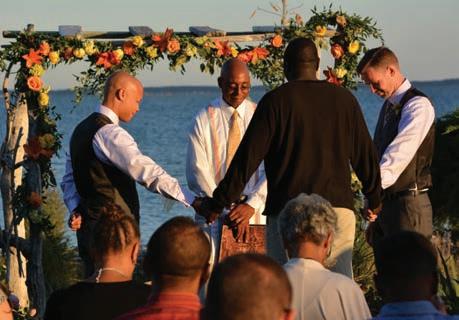









CONTINUED FROM PAGE 10
Critics pointed to her ousting from Loyola Marymount University, where she was the dean of its School of Film and Television for less than three years.

“She was known to rant and rave at people,” a former Loyola Marymount University professor said, according to The Wrap, which was first to report Rajski’s ousting.
Rajski spent her first weeks organizing listening tours – with a select few people chosen from each department and affinity group. Sources familiar with those conversations said she was sympathetic to staff concerns, saying that she couldn’t believe what Paley put the organization through.
The honeymoon was short lived as she started describing staff who spoke out as rude, arrogant, and worse, sources told the Blade. Current and former staff said she criticized workers for speaking out, blaming problems on everyone but herself, misgendering staff – and being offended when corrected – and making everything about herself.
Trevor’s leadership would tell employees to spend surplus funds at the end of year, instead of putting them into Trevor’s reserves – even when the deficit was discovered, according to a former employee.
“There were no policies around spending either,” the source said.
A Trevor Project statement said that the organization made budget cuts, reduced outside consulting expenses, instituted a hiring freeze, limited non-urgent work travel, and used its reserve to close the deficit. Two current employees confirmed that travel restrictions seem to have taken place.
The organization created a new role that oversees both Trevor’s digital operation and its phone lines – instead of hiring one person for each. It did not hire more lifeline associates, a source told the Blade. Both employees pointed out, though, that there are several open roles on Trevor’s website. One employee said the organization considered the positions “mission critical,” which is why they were posted.
It’s unclear how much revenue Trevor lost – representatives for the federal government, Trevor, and for Vibrant Emotional Health all declined to reveal the figure. The Blade has submitted a Freedom of Information Act request to obtain the numbers.
The layoffs upset those close to the Trevor Project, but they didn’t receive widespread recognition. Layoffs among the 988 anti-suicide line staff representing the Trevor Project did, though, thanks to TikTok.
“Basically, we are being told, you are without a job – we can try and get you a job but you might have a job, good luck out there,” Eli, a former crisis counselor working for Trevor, said in a viral TikTok video that racked up 62,000 views. He did not respond to a request for comment.
July. This time, the federal government allocated $29.7 million to the LGBTQ+ subnetwork – more than three times the amount that the entire 988 lifeline received in 2021.
As part of the expansion, Vibrant decided to increase the number of call centers running the LGBTQ+ crisis line from just one, the Trevor Project, to seven, with Trevor still on board. The change meant a smaller piece of the pie for Trevor – the $29.7 million would now be distributed among seven different organizations.
That decision came as a shock to Trevor, Mitchum reflected.
“After a while, Trevor leadership genuinely thought we would never have additional providers outside of Trevor,” Mitchum told the Blade.
A Trevor Project spokesperson said in a June statement that the organization had “recently learned” about the expansion of the LGBTQ subnetwork. The Trevor statement noted that the expansion would lead to “an exponential increase in support for the number of LGBTQ callers and texters to the 988 Lifeline.”
Having to split the funding, though, was enough to cause Trevor lay off more than 200 crisis workers, Trevor Project crisis counselor Finn Depriest said.
The counselors received the news on May 14. They had been invited by an email entitled “988 updates” with a meeting link. The crisis counselors’ recruiters, managers said, would contact them by the end of the day to let them know if they were fired or not.
Depriest got their call and was in luck. But fellow crisis counselor Rae Kaplan wasn’t so lucky. A person in Trevor’s IT department – not even her recruiter – told her she was being let go.
“I was definitely starting to have a panic attack,” Kaplan said.
“I saw that in all hands meetings, she would get very snippy, very combative,” said Vargas, the former New York office manager.
During a meeting in which she announced layoffs at Trevor – 12% of its workforce – she chided staff for using emoji reactions in the chat, he said.
The 44 mid- and upper-level staff were laid off after, seemingly, a huge budget hole emerged. It’s unclear how big exactly that hole is – a Trevor Project statement revealed a “sharp drop” in revenue but did not provide an exact figure, and no current and former employees who spoke to the Blade were able to provide an exact figure.
One former employee said they were told there was a $25.2 million deficit in late April of this year, but former Head of Finance and Administration Joel Lam said he had gotten the deficit down to about $6 million. Another former employee familiar with the organization’s finances confirmed that the deficit was between $4 million and $7 million around then.
That didn’t worry the Trevor Project’s executives, according to a former employee, because the organization had more than enough money in its reserves – about $55 million at the end of July 2022, according to public financial documents –to cover that loss.
But sometime between late April and June of this year, the Trevor ship sprang a huge leak.
The entire recruitment team, payroll team, the training team for Trevor’s hotline, much of the financial team, as well as other staff were laid off, sparking anger.
What, they wondered, happened to the $55 million the organization had reported in assets?
No one is sure what happened and a Trevor spokesperson declined to make executives available for an interview. But the staff have some ideas. They cite Trevor’s rapid expansion in the past years under Paley as a main cause and some described wasteful spending.
The National Suicide Hotline Designation Act of 2020 created 988’s LGBTQ+ subnetwork as a pilot project. During that pilot, the Trevor Project was the only organization running the section of 988 dedicated to LGBTQ+ youth. Mitchum said he pushed back on that, saying Trevor did not have the resources to run the lifeline by itself and even if it did, more than one organization should provide support. Then-CEO Paley, though, reportedly disagreed.
“I think Trevor became so bogged down in the minutiae of money, of notoriety, of power, that it lost all ideas of responsibility to LGBTQ people,” Mitchum said.
Nevertheless, 988 lifeline administrator Vibrant Emotional Health sent out a request for proposals for the pilot project, several former employees confirmed to the Blade, but it is unclear if any organizations other than Trevor applied.
The Trevor Project was the only organization running the LGBTQ+ line. The Substance Abuse and Mental Health Services Administration, charged with federal oversight of the 988 program, pumped $7.2 million into the pilot. The federal government vastly underestimated the numbers of callers and texters to the line, leaving Trevor short-staffed and unprepared for the surge of people seeking support, a source told the Blade. Long wait times were the norm, so much so that Vibrant rebuked Trevor over the issue, two former staffers told the Blade.
Trevor kept the news about the dedicated LGBTQ+ line quiet until December, when it announced the service in a press release – despite its soft launch in September of 2022.
“The Trevor Project is incredibly thankful to the federal government for the major investment in these life-saving specialized services,” Mitchum said in the press release. “It’s vital that all young people have access to culturally competent care in moments of crisis.”
The 988 program was successful enough for Vibrant to make the hotline a permanent fixture less than a year later in
A whirlwind of communication followed. Staff were first told they would be laid off on July 2, two weeks after the meeting, but were later told that Trevor had secured more funding to keep the counselors on its payroll until Aug. 31. Now, a Trevor spokesperson confirmed, the organization has received additional funding to keep the counselors on through the end of September.
Kaplan took advantage of the offer to stay on until August when they received it but was fired in July for reacting with emojis during an all-staff meeting, they said.
Everhart was scheduled to begin work at Trevor the same day the layoffs were announced. But at their orientation, they were suddenly told they were no longer needed. They posted their now-viral TikTok with 91,500 views.
Everhart moves down in the frame of their TikTok video to reveal the Trevor Project’s website, warning that “wait times to reach a counselor are higher than usual.”
“Which is so weird,” Everhart continued in the video posted June 9, “because this is what their website said right after I got laid off.”
In reality, the higher wait times were unrelated to the position they were hired for, working on the 988 line. Counselors for Trevor’s crisis services, who run the services on the organization’s website and phone line, are employed by the Trevor Project directly. Counselors working on the 988 hotline representing Trevor, what Everhart was hired for, are contractors employed through recruiting company Insight Global.
No counselors working directly for Trevor’s Lifeline or TrevorChat products have been laid off, several current employees confirmed, and a surge in wait times for Trevor’s own services has no bearing on wait times for 988 counselors. A Trevor spokesperson did not respond to a message seeking comment.
CONTINUES ON PAGE 44








The American Red Cross announced a historic change in the organization’s policies regarding blood donations by gay and bisexual men. Under this new donor screening process, all donors answer the same eligibility questions regardless of gender or sexual orientation and will be assessed for blood donation based on individual risk factors, not on sexual orientation.

This change by the Red Cross falls within the U.S. Food and Drug Administration finalized guidelines for blood
donation issued this past May that will use a uniform individualized risk assessment questionnaire for respondents regardless of their sexual orientation, sex, or gender.
In a statement the Red Cross noted: “This change means many healthy individuals who previously could not give will now be able to support their community through the gift of blood donation.”
Andrew Goldstein, a cancer researcher from Los Angeles, was a regular blood donor in his younger years before the FDA’s previous policies made him ineligible to donate as a gay man. His desire to influence change compelled him to register as a participant in the FDA funded ADVANCE Study in 2021, which sought to gather data to evaluate the possibility of moving to an individual donor assessment. He is proud he was able to be part of the study that led to this change and is excited to finally be able to
give blood again.
“There’s so much in the world that you can’t help with, and you sometimes have to see people going through difficult times, but something like giving blood feels like something so small that you can do, and it means a lot to me that I’ll be able to do that again,” said Goldstein.
The FDA’s new protocols issued in May note that prospective donors who have had a new sexual partner, or more than one sexual partner in the past three months, and anal sex in the past three months, would be ineligible.
So would those who are “taking medications to treat or prevent HIV infection (e.g., antiretroviral therapy (ART), pre-exposure prophylaxis (PrEP) and post-exposure prophylaxis (PEP),” because these drugs can delay the detection of HIV.
FROM STAFF REPORTSThe 17-year-old suspected of fatally stabbing Black queer dancer O’Shae Sibley a week ago, has been charged with murder as a hate crime and criminal possession of a weapon. New York City Mayor Eric Adams, New York Police Department officials and community leaders spoke at a public press conference held at the location of the deadly stabbing in Brooklyn’s Midwood neighborhood detailing the charges brought in the case.
Adams told those gathered that “[Sibley’s] parents have
The executive director of Equality Virginia this week reiterated her sharp criticism of efforts to ban books with LGBTQ-specific content.
“There is a dangerous, insidious trend developing in states around the country where innocuous and inclusive books are being removed from libraries and curricula, including and especially books and resources about LGBTQ+ people,” Narissa Rahaman told the Washington Blade on Tuesday in a statement. “We should not be pursuing book bans in a pluralistic democracy, but rather seeking to provide more information, more resources, more points of view for anyone seeking it out.”
Rahaman spoke with the Blade against the backdrop of continued efforts to ban books with LGBTQ-specific content as students return to the classroom in Virginia and around the country.
A group of parents who want the ability to allow their children to opt-out of classes in which books with LGBTQ-specific themes are read have filed a federal lawsuit against the Montgomery County Board of Education and Montgomery County Public Schools Supt. Monifa McKnight. A hearing in the case took place in U.S. District Court in Greenbelt on Wednesday.

“The Montgomery County Board of Education took away parental notice and opt-outs for storybooks that advocate pride parades, gender transitioning and pronoun preferences for kids as young as pre-kindergarten,” said Becket, a conservative law firm that advocates for religious freedom, in a statement about the case. “Becket is helping a group of Muslim, Catholic and Ethiopian Orthodox parents who want to restore their ability to raise their children consistent with their faith.”
NBC Washington on Tuesday reported Michelle Ross, di-
lost a child in something that was clearly a hate crime.” The mayor then thanked the NYPD reflecting that the apprehension of the teenager was made possible by the contributions of “everyday New Yorkers” in aiding the NYPD with information and tips.
The mayor then addressed the fact that initially it seemed “that the hate was coming from the Muslim community against the LGBTQ+ community — that was in fact not true,” Adams said. “These are both important communities in the
City of New York, they contribute to the community, … and both are against any level of hate.”
The apprehension was a joint effort by NYPD’s fugitive task force and the U.S. Marshal’s Fugitive Regional Task Force. The 17-year-old was charged under New York Penal Law § 125.25: Murder in the second degree with a hate crime enhancement, he’s also being charged with criminal possession of a weapon and has been remanded into custody.
BRODY LEVESQUErector of the Samuels Public Library in Front Royal, Va., has resigned after she and her staff faced harsh criticism from a group that wants to ban books with LGBTQ-specific content. Donald “Mac” Scothorn, chair of the Botetourt County (Va.) Board of Supervisors, on July 31 proposed adult supervision for anyone under 18 years old who visits the county’s four libraries.
The Hillsborough County School District in Florida ahead of the 20232024 school year has prohibited teachers from teaching their students about William Shakespeare, citing the state’s “Don’t Say Gay” law that Republican Gov. Ron DeSantis signed. The Urbandale Community School District in Iowa has removed a Transportation Secretary Pete Buttigieg biography and nearly 400 other books from school libraries and classrooms.
“We even see extremists ban books and attempt to erase, and even rewrite, the ugly parts of our history,” said Vice President Kamala Harris in Orlando, Fla., on Aug. 1 in response to the Florida Board of Education’s new Black history curricula standards that suggest slavery had benefits. “Right here in Florida, they plan to teach students that enslaved people benefited from slavery. They insult us in an attempt to gaslight us, in an attempt to divide and distract our nation with unnecessary debates.”
A federal judge in Texas in April ordered Llano County officials return books — many of which had LGBTQ-specific content — they removed from their public libraries.
Republican Arkansas Gov. Sarah Huckabee Sanders ear-
lier this year signed a law that would have made it a crime for librarians and booksellers to provide access to books and other materials deemed “harmful to minors.” The statute was to have taken effect on Aug. 1, but a federal judge blocked it.
The College Board on Aug. 3 said the Florida Department of Education had effectively banned the teaching of Advanced Placement Psychology classes in the state’s schools because the course includes discussions about sexual orientation and gender identity. Florida Education Commissioner Manny Diaz, Jr., in a letter he sent to the Florida Association of District School Superintendents the following day said the course could be taught “in its entirety.”
California officials — Democratic Gov. Gavin Newsom, Attorney General Rob Bonta and State Superintendent of Public Instruction Tony Thurmond — in a June 1 letter to the state’s public school superintendents and charter school administrators told them not to ban books. The Prince George’s County Memorial Library System the day before announced the launch of its Rock Banned Book Club.
“Here in Virginia, we were founded in response to government overreach,” Rahaman told the Blade. “As this conversation moves throughout state legislatures, we’re hopeful that our founding principles and open society outweigh the fear-mongering from opportunistic politicians and government officials.”
(Brody Levesque and Christopher Kane contributed to this article.)
As
return to school, book ban movement
Effort to prohibit LGBTQ-specific material is ‘insidious’(Photo by Terri Schlichenmeyer) (Photo courtesy of American Red Cross)











Featured authors include:
Elliot Page
Douglas Brinkley
Amor Towles
Mary Louise Kelly
R.J. Palacio
Ada Limón
George Saunders
David Grann
Elizabeth Acevedo
Meg Medina
Jesmyn Ward and many more...
My husband and I took a chance with his former employer. He was offered a promotion and transfer to the United Arab Emirates to help open a new store for them. He had lived in the UAE before and oddly our transcontinental love affair kicked off in this anti-LGBTQ country. While we were a bit nervous, we assumed, wrongly, that a company that prides itself on being supporters of our diverse LGBTQ community would offer benefits to LGBTQ employees.
Although in their stores they sell rainbow watch bands, when it comes to providing benefits to same-sex couples when not required by law, they do anything but that.
Before he accepted, my husband asked directly what benefits would be offered. The regional manager said he would check back in with my husband after it was stressed to him that we would not be taking the transfer if they didn’t offer us equal benefits. They responded quickly with an offer to cover a freelance visa option, which also requires health insurance to be issued. After a bit of self congratulating about how great of a company they were to offer these basic things, off we went.
Surely it would be company policy to offer basic benefits to LGBTQ employees, even when not required by law, since their CEO is a high-profile openly gay man and the first to run a major tech company.
Once we landed in the UAE it became clear that our worst fears were just starting. While any international move will have its bumps, one expects the bumps to not be made worse by an uncaring upper management. When my visa was delayed, we were ostracized for not signing a lease until the visa was issued. When the relocation service told us that they didn’t put us both on the lease and I would need to sneak into our new building, we were told we were making it a bigger deal than it was. When we asked about how to access the healthcare that was a part of my visa we were told: “Why do you think that your family deserves these benefits?” “Why don’t you just sleep on it before asking the higher ups?” “You should have known better than to expect us to do this.”
In the end, we paid out of pocket for my health insurance. The writing was on the wall all along, but we made a commitment to this company to stay for at least two years and we were not going to break it.
One month before my visa was set to be renewed, with one year to go on our two-
year commitment we received an email asking if I wanted to renew my visa. After affirming we would, we were simply sent a price list by the company. When asked if they would be covering the cost still, they stopped responding. After two weeks of emails, and with two weeks until my visa was set to expire we were told that the company would not cover the cost. This kicked off three months of abuse by upper management to my husband as we tried to understand what was happening. We were told:
“Why can’t you just pay for it yourself?”
“Why do you think people like you deserve these benefits?”
“You should be happy with what we have done for you.”
“You need to be careful asking for these things.”
“It is just your perception that we are discriminating against you. We are just respecting local customs by not providing you and your family healthcare and visa benefits.”
After the second month of them stringing us along, and numerous investigations from various HR department heads, we had to move into a hotel or be forced to sign another year lease for our apartment. We stayed in the UAE until the very last day that I legally could without risking being fined. We gave them every opportunity to do the right thing.
But Apple never did the right thing. Apple, a company run by a gay man, Tim Cook, whose senior vice president of retail and former head of People is also a member of our community, Deirdre O’Brien, who every Pride month proudly claims “support” of our community, openly discriminated against our family for being LGBTQ.
Apple, which forced my husband to give presentations on benefits for married and unmarried heterosexual couples, was forced out of his job because he simply asked for them to give us those same benefits.
Apple forced my husband out of his career of 11 years for simply asking them to live up to the values that they claim.
What’s next? There is no recourse for us, but other LGBTQ employees of Apple should know that Apple’s commitment to diversity and inclusion ends when they are asked to do the right thing. Our community should know that Apple is just another corporation that gladly profits off us but runs away when asked to treat us with dignity.
Apple’s commitment to diversity ends when asked to do the right thing
Another corporation that profits off of Pride but fails to offer equal benefits

















is a longtime LGBTQ rights and Democratic Party activist. He writes regularly for the Blade.





The recent New York Times/Sienna College poll shows President Biden and Donald Trump in a virtual tie. It is getting headlines across the country and yet means absolutely nothing. As these headlines show, the only thing it does is give journalists, columnists, and TV pundits, something to endlessly write and babble about. Of course, adding insult to injury, all these polls are hypothetical. We have no assurance Trump will be on the ballot. We are surer Biden will be. Who knows what the Republican Party, or as some call it, the Trump Cult, will do as he has just been indicted for the third time, and the fourth indictment is in the offing in Georgia?
The sad truth about our country today is we are so divided the results of the presidential race will be decided again, not by national vote totals, but rather by results in maybe eight states. It is clear no matter whom the Republicans nominate, that person will not win California or other Northwest states. Nor will they win New York and other Northeast states. Biden will not win Deep South states. This may be a sad state of affairs, but it is reality.
In 2020, the states we looked at for the final Electoral College vote were Pennsylvania, Wisconsin, Michigan, Georgia, Nevada, Arizona and maybe one or two others. That will be the case again. If Trump is the Republican candidate, I predict, without any polling, Biden will win by 10 million votes, three million more than last time but will not add one additional electoral college vote. If Trump is not the candidate, the election will be closer. But if the Republican Party runs on the same issues, and continues to run to the right, which all their current candidates are doing, Biden will still win. But as with any election, if Democrats want this to happen, they will have to work hard. They don’t need any poll to tell them that.
The majority of the nation, including women (they are a majority on their own), the LGBTQ community, and African-American community all have something to fear from a Republican president, no matter who it is. Even those who sound slightly sane, like Chris Christie and Asa Hutchison, will hone to the far right to win MAGA votes. Any Republican administration will continue to strip away personal rights from women, and will do nothing to further the fight for equality for the LGBTQ community and African Americans. The Republican Party today won’t even acknowledge structural racism. The one African-American candidate running for their presidential nomination, Sen. Tim Scott (R-S.C.), claims we are not racist. Mind-boggling in so many ways.

I feel a certain sadness when I write this, along with some anger. Sadness because I have for years thought our country had been making strides toward equality. Today we are either at a standstill, or regressing. Anger at some of the most egregious of the racist, sexist, homophobes, elected by Republicans, winning their districts to the detriment of the voters who elect them. The country is surely in trouble when people elect crazies like Ronny Jackson (R-Texas), Lauren Boebert (R-Colo.), Marjorie Taylor Greene (R-Ga.), Paul Gosar (R-Ariz.), Andy Biggs (R-Ariz.), and Matt Gaetz (R-Fla.), among others. What is incomprehensible is these nutcases are now pulling the strings of House Speaker Kevin McCarthy, as if he is a puppet, and they are the puppeteers.
History has shown except for the most committed voters who decide early, those who will make the difference in this election won’t make their final choice of a candidate until after Labor Day 2024. The state of the economy today doesn’t matter nearly as much as what the state of the economy will be in June 2024, nearly a year away. At that time inflation, prices for gas and in the grocery store, unemployment will impact their vote.
Democrats must be able to count on, and motivate to vote women, African Americans, and the LGBTQ community, whose issues go beyond the economy. For them it is personal safety and personal rights. Those voters will make the difference for Democrats at all levels of government.
So, you need not worry about general election presidential polls at this time. They simply make money for the pollsters, and provide fodder and publicity for anyone reporting on them. They don’t mean a thing, and judging by experience, most likely aren’t even accurate.

The fight will again come down to a handful of swing states

The World Federation of the Deaf (WFD) recently announced that the next Deaf Congress will take place at the United Arab Emirates. This is problematic because the UAE is one of the more than 64 countries that have laws and policies that criminalize homosexuality. We call on the WFD to switch the location to a country where all deaf attendees will be safe and welcome. WFD represents nearly 72 million Deaf persons worldwide. They made the announcement at its 19th World Congress in Jeju, South Korea. The UAE was selected over runners-up Norway and Nigeria.
In the UAE, a kiss, a hug or holding hands by same-sex couples or public display of affection are forbidden and illegal. For instance in 2017, a British man was arrested and jailed three months for touching a fellow man’s hip. Discussions about LGBTQIA topics are also illegal.
In accordance with its mission and core values, the WFD works to advance and defend the human rights of all persons who are deaf, regardless of their gender, sexual orientation, age, ability, ethnicity, language or culture. Therefore, it is against its own mission to host a major event at the UAE.

It is crucial for international organizations like the WFD to take a stand against any form of discrimination including those faced by the LGBTQIA+ Deaf community living in the intersectionality of deafness and their sexual orientation including those from countries incriminating homosexuality. The World Congress should promote inclusivity. Such a World Congress would provide a platform for Deaf individuals to come together to share their experiences and address issues that are specific to their community. It would actively work towards inclusion by ensuring representation and equal participation for all Deaf people regardless of their background gender identity or sexual orientation.
Indeed, one important focus of the Congress should be to address the unique challenges faced by Deaf individuals who identify as LGBTQIA. This would foster dialogue and understanding within the Deaf community ensuring that all voices are heard and respected. By promoting acceptance and inclusivity the congress would contribute to a society where Deaf LGBTQIA individuals can live authentically without fear of discrimination or prejudice.
Instead, by choosing to hold the Deaf Congress in a country with anti-LGBTQIA+ policies and uncertainties, the WFD is sending a harmful message to the international community condoning discrimination and oppression. It is a slap in the face to the LGBTQIA+ Deaf community and their allies who have been fighting tirelessly for equal rights and recognition.

Moreover, hosting the congress in the UAE will put Deaf LGBTQIA+ attendees at risk. They could face persecution, harassment or even imprisonment under the country’s discriminatory laws. This lack of regard for their safety and well-being is unacceptable and contradicts the principles of inclusivity that should guide the WFD’s actions.
I recognize that holding the congress in the UAE means it would be more accessible for attendees in terms of costs and a lenient visa policy. Nevertheless, it is crucial to prioritize the inclusion and safety of LGBTQAI+ attendees. Thus, the organization should choose host countries that have a proven track record of upholding human rights, including the rights of LGBTQIA+ individuals, as well as ones with manageable vias policies. By doing so the WFD would send a powerful message that it stands firmly against any form of oppression and supports the rights and dignity of all Deaf people regardless of their sexual orientation or gender identity.
Furthermore, the WFD should use its platform to raise awareness about the challenges faced by LGBTQIA+ Deaf individuals around the world. By highlighting their experiences and advocating for their rights the WFD can contribute to the broader movement for LGBTQIA+ equality and help dismantle the barriers that stand in their way.

In addition, the WFD should be instrumental in raising awareness of issues relating to deafness as a diversity, improving accessibility at their events, and increasing the visibility of Deaf people in the LGBTIQ+ community. This should include coming up with creative ways to connect with and serve these people through their members.
In conclusion, the WFD’s decision to hold the 2027 Deaf Congress in the UAE, a country with a well-documented anti-LGBTQIA+ stance, is deeply concerning. It contradicts the principles of inclusivity and equality that the organization should uphold. By hosting the congress in a country that promotes discrimination and oppression, the WFD would be complicit in perpetuating the marginalization faced by the LGBTQIA+ community.
It is time for the WFD to take a stand and prioritize the rights and dignity of all Deaf people irrespective of their sexual orientation or gender identity.
Homosexuality remains criminalized in the Middle East country
THE HOME YOU’VE ALWAYS WANTED. THE MORTGAGE YOU NEED TO FINALLY OWN IT.




(StatePoint) — Is the SAT or ACT on the horizon for your high schooler? A lot of emphasis is placed on college entrance exams, and your child may be anxious about their scores. To adequately prepare for the SAT or ACT, consider these tips:





• Practice, practice, practice: Encourage your student to take free online practice tests early and often. Not only is this an effective way to get familiar with the types of questions that will be on the test, it can give your child a sense of where they stand currently and help them identify areas where they may need some extra review. It’s helpful to simulate test day as much as possible. Have them take the practice test in a quiet place and time each portion of the test accurately.



• Have the right STEM tools: Acing the math portion is easier when you fully understand the principles behind the test questions. Fortunately, you can affordably equip your student with tools that facilitate that understanding. Casio, dedicated to making STEM education more engaging, has developed the fx-CG50, a graphing calculator in the brand’s PRIZM line-up that offers a color LCD with a full textbook-style display. Jam-packed with features that enable students to solve the most challenging equations, it offers the ability to easily draw three dimensional graphs such as planes, cylinders and spheres, and view them from various angles in order to better analyze their shape. Plus, a cross-section option and special zoom function can
be used for greater analysis.









• Build vocabulary: An expansive vocabulary is not just useful in the real world, it can greatly improve a student’s chances of success in the English, reading and writing sections of the exam. Getting familiar with some of the more frequently used words on the test is important. However, it’s best to break up the studying into chunks. Select a few words to master each day with flash cards. Hopefully, students will start to see etymological patterns that will help them make educated guesses when they don’t know a word.
• Take a break: It’s tempting to assume a last-minute study session the evening before the exam is going to make or break their performance, but a mental breather is actually a better use of time. Urge your child to get a good night’s sleep not just the night before the test, but that entire week. Pre-test jitters may lead to insomnia, but having a solid foundation of rest will help ensure your student is alert on test day. The morning of the test, encourage them to eat a healthy, filling breakfast and do activities that will warm up their brain, such as reading a book or solving a crossword puzzle.
Sufficient preparation and great study tools can alleviate college entrance exam anxieties so that your student walks into their testing center with confidence.









(Statepoint) — American families are expected to spend record-high amounts this back-to-school season. According to the National Retail Federation (NRF), families with children in elementary, middle and high school will spend $890 on average for school items, while those with college-aged students are looking at more than $1,360 in shopping expenses.
Whether your kids are off to kindergarten or college, here’s how you can shop smarter and prepare for the school year:

1. Upgrade Your Devices. Electronics and tech are a top priority for families this school season. The NRF says Americans are expected to spend a collective $15 billion on electronics for back to school and $23 billion for back to college. The good news is that you may be able to score deals this back-to-school season to help save on smartphones, wearables and more. T-Mobile is offering a free REVVL 6 Pro 5G, OnePlus Nord N30 5G or Samsung Galaxy A14 5G when adding a voice line for each device on a qualifying plan via 24 monthly bill credits plus tax. Plus, if T-Mobile customers prefer to gear up with a wearable, they can score the wireless company’s exclusive SyncUP KIDS Watch for free when adding a qualifying watch line via 24 monthly bill credits plus tax. To learn more about T-Mobile’s back-to-school deals, head to t-mobile.com/offers/back-to-school-deals.
2. Keep Track of School Items. It’s the time of year








when backpacks, lunchboxes and musical instruments tend to go missing. Ensure your child or college student never loses their items again by placing a T-Mobile SyncUP TRACKER in items of importance. It’s a simple, easy way to help you keep track of belongings.
3. Stay Connected for Study Time. For families or college students looking for an affordable option to stay connected at home, T-Mobile has them covered with 5G Internet for only $30 per month with a Go5G Plus or Magenta MAX plan and AutoPay. For those unsure about making the switch, the wireless company offers a worry-free Test Drive of its 5G Internet for 15 days. And, T-Mobile 5G Internet comes with a Price Lock Guarantee, so you can rest easy knowing your monthly rate won’t increase (exclusions like taxes and fees apply). Learn more by visiting https://www.t-mobile. com/homeinternet.
4. Prioritize a Sleep Routine. A recent “Lancet Journal” study found that children need at least nine hours of sleep each night to support healthy neurocognitive development. Set your kids up for success by creating a school bedtime and wakeup routine a couple weeks before school begins to help ease into the new academic year. Apps like Moshi use sounds, sleep stories and even meditations to encourage better sleep for kids, and Calm can be used for college students and
parents to ease stress. Get ready to rock the school year with some savvy planning, deal-hunting adventures and a dose of healthy habits that create an epic year ahead for you and your family.




 By KAELA ROEDER
By KAELA ROEDER
OutWrite D.C., the District’s annual LGBTQ literary festival, is returning Friday and runs through Sunday.
The free event is completely virtual this year and will feature more than 55 LGBTQ authors, poets, novelists and playwrights, as well as curated panels and workshops. Topics include queerness in crime fiction, writing about and living with AIDS and the history of LGBTQ bars.
Panels and readings will be available for live viewing on Youtube. Workshops will take place via Zoom and require registration. The festival, which is part of the D.C. Center for the LGBT Community, was first launched in 2016.


To Emily Holland, OutWrite’s chair, the event is especially important as legislative attacks against LGBTQ people continue. There are currently 492 anti-LGBTQ bills in the United States, according to the ACLU.
“It’s extremely important to have these spaces that highlight and center the voices that are being silenced the most,” Holland said. “That’s the lens that we took when approaching the curation of this festival — is how do we put these events front and center, and show that we’re still here, and our stories matter, and people are hungry for this work in this way.”
Kim Roberts, one of the creators of the D.C. Pride Poem-a-Day project (a video series released in June of LGBTQ poets sharing their work), said these literary events are integral as school library book bans and challenges persist, as well as protests and laws banning events like drag queen storytimes.
“It’s just the societal regression in rights for LGBTQ+ people. It’s shocking. And a lot of it is around literature,” Roberts said. “It’s the fact that so much of the attacks have been really based around literature that is so striking.”
And LGBTQ literary festivals like OutWrite are scarce, Roberts said, and the importance of it cannot be ignored.
“The city needs to understand what a rare and precious thing an LGBTQ+ literature festival is,” she said.
There’s also a journal published in conjunction with each OutWrite festival. Last year’s theme was “Pandemic as Portal.” This year’s theme is “Levity” and will feature about 15 to 20 works by LGBTQ authors.
“We’re getting into the space of maybe trying to find joy, or at least, some lightness, among the subject matters here,” Holland said.
The festival’s keynote speaker is Mecca Jamilah Sullivan, the author of the novel “Big Girl” — a New York Times Editors’ Choice selection. The novel follows the coming-of-age of Malaya, and her journey in “shattering her inherited stigmas surrounding women’s bodies and embracing her own desire.”

Sullivan first got involved with OutRight in 2016 as a panelist when she published her first book, a collection of short stories. She reflected on the rich community aspect of the festival, and how it had a sizable impact at that point in her career.
“It really did have this very rich community feel,” she said. “It was something very special.” To learn more about OutWrite, visit thedccenter.org/outwrite/.














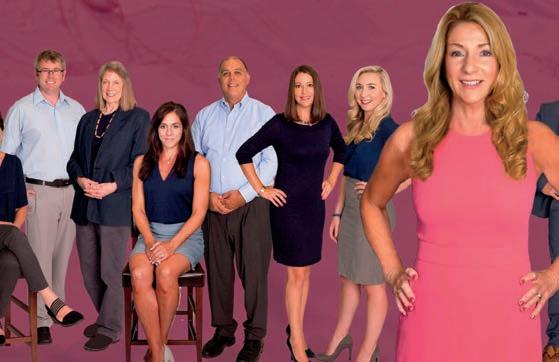





Friday, August 11
GoGay DC will host “LGBTQ+ Social in the City” at 7 p.m. at Hotel Zena. This event is ideal to make new friends in the LGBTQ community or just to unwind and enjoy extended happy hour. Admission is free and more details are available on Eventbrite.
Women in Their Twenties and Thirties will be at 8 p.m. on Zoom and in person at the DC Center for the LGBT Community. This is a social discussion group for queer women in the D.C. area and a great way to make new friends and meet other queer women in a fun and friendly setting. For more details, join WiTT’s closed Facebook group.
Saturday, August 12
GoGay DC will host “LGBTQ+ Brunch” at 10 a.m. at Freddie’s Beach Bar & Restaurant. This fun weekly event brings the DMV area LGBTQ community, including allies, together for delicious food and conversation. Admission is free and more details are available on Eventbrite.
Universal Pride Meeting will be at 1 p.m. on Zoom. This group seeks to support, educate, empower, and create change for people with disabilities. For more information, email andyarias09@gmail.com.
Sunday, August 13
By TINASHE CHINGARANDETuesday, August 15
GoGay DC will host “LGBTQ+ Dinner & Conversation” at 6 p.m. at Federico Ristorante Italiano. Guests are encouraged to come enjoy an evening of Italian-style dining and conversation with other LGBTQ+ folk on the enclosed front patio. Admission is free and more details are available on Eventbrite.
“Brewed Up Drag Brunch” will be at 11 a.m. at Red Bear Brewing Co. This event will be hosted by Desiree Dik and feature performances from drag queens Venetian, Javon Love, Elecktra G and Citrine. General admission tickets cost $25 and can be purchased on Eventbrite.
Center Aging Monday Coffee and Conversation will be at 10 a.m. on Zoom. LGBT Older Adults — and friends — are invited to enjoy friendly conversations and to discuss any issues you might be dealing with. For more information, visit the Center Aging’s Facebook or Twitter.
“Reign: A Variety Drag Show” will be at 8 p.m. at Dupont Italian Kitchen. The event will be hosted by Logan Stone and feature performances from Dabatha Christie, Hennessey, Sirene Noir Sidora Jackson, and Anamosity. Admission is free and more details are available on Eventbrite.
Team DC and Federal Triangles Soccer Club will host “United Night Out” on Saturday, Aug. 26 at 7:30 p.m.
This event will celebrate the LGBTQ community and cheer on the Black-and-Red as they take on the Philadelphia Union.

Team DC is the association of LGBTQ sports clubs in the greater Washington region with 42 member clubs (including FTSC) with more than 7,000 participants. Team DC sponsors the Pride Night OUT Series, which helps organize Pride nights with all local pro teams. In 2023, Team DC will sponsor 14 different Pride nights, including the United Night OUT.
Tickets are $30 and can be purchased on Team DC’s website.
BiRoundtable Discussion will be at 7 p.m. on Zoom. This roundtable is an opportunity for people to gather in order to discuss issues related to bisexuality or as bi individuals in a private setting. For more details, visit Facebook or Meetup. Pride on the Patio Events will host “LGBTQ+ Social Mixer” at 5:30 p.m. at Showroom. This event is a weekly cocktails and dinner social mixer for the LGBTQIA community. Admission is free and more details are available on Eventbrite.
Wednesday, August 16
Job Club will be at 6 p.m. on Zoom. This is a weekly job support program to help job entrants and seekers, including the long-term unemployed, improve self-confidence, motivation, resilience and productivity for effective job searches and networking — allowing participants to move away from being merely “applicants” toward being “candidates.” For more information, email centercareers@thedccenter.org or visit www.thedccenter.org/careers.
Thursday, August 17
Virtual Yoga Class with Jesse Z. will be at 12 p.m. online. This is a weekly class focusing on yoga, breathwork, and meditation. Guests are encouraged to RSVP on the DC Center’s website, providing your name, email address, and zip code, along with any questions you may have. A link to the event will be sent at 6 p.m. the day before.
EQUALITY NoVa will host a town hall on Saturday, Aug. 9 at 1 p.m. at Unitarian Universalist Church of Arlington. The purpose of this town hall is to gather community input on the organization’s name, mission, and activities and to gather ideas from the community on how EQUALITY NoVa can best serve the LGBTQ community.
EQUALITY NoVa was founded in 1981 as the Arlington Chapter of the Virginia Gay Alliance later becoming the Northern Virginia Gay Alliance, and then the Arlington Gay & Lesbian Alliance now operating as EQUALITY NoVa. The organization is the longest continuously operating LGBTQ organization in the Commonwealth and its mission is to provide safe social events, community service projects, and nonpartisan political awareness.

As a kid in Upper Marlboro, Jimmy Mavrikes was obsessed with ‘90s boy band NSYNC and JC Chasez — not Justin Timberlake, Lance Bass, or one of the others — was his indisputably favorite member.
“NSYNC was definitely an awakening for me,” says the award-winning out actor. “I was too young to understand, but I did know that watching five really cute guys sing and dance in sync if you will, was something exciting.”
What’s more, there was a connection. The fathers of the teen idol and Mavrikes played softball together; and according to family lore, once while seated in the bleachers, Mavrikes’ mother passed Chasez’s little sister a tissue. Heady stuff for a young super fan.
And now, all these years later, Mavrikes, 32, is singing some of the band’s songs in “Cabaret: Sounds of Boy Bands,” a tribute to the Backstreet Boys, NSYNC and Boyz II Men, and 98 Degrees at Olney Theatre on Aug. 18.
As part of Olney Outdoors, 25 summer programs to be held on the newly renovated Root Family Stage at Omi’s Pavilion. The concert features, in addition to Mavrikes, talented performers Derrick Truby, Jay Frisby, Ryan Burke accompanied by a small band, usually four to seven players.
Olney Theatre’s summer program kicked off in July and has been melodically hopscotching through the decades and various genres since. The program includes sixteen actors singing in three or four concerts in which each has three or four songs – solos, duets, and group numbers.
Mavrikes has already appeared in “Cabaret: 70s Country,” and when this write-up runs, he will have lent his gorgeous tenor to “Cabaret: 80s Rock.”
He wasn’t exactly sure why he was to cast sing 1970s country, but he enjoyed it: “The songs were all new to me. Really, I didn’t know any of them, but when I saw something titled “Rhinestone Cowboy” (Glen Campbell’s 1975 mega hit), I figured that was right for me without even listening, and it was.”
But with “Cabaret: Sounds of Boy Bands,” it’s different. He looks forward to singing his favorite pop genre, saying “this is the show where I’ll come to the first rehearsal off book…I already know all the lyrics.”
Performing outdoors on Olney’s verdant campus isn’t without challenges. “Olney sets the singers up for success with a really good pre-show sound check. Still, you can’t control traffic sounds or screaming kids or, more significantly, weather. My first Olney Outdoors concert was inside. It was a stifling hot day with a heat advisory, and then it began pouring down rain, so in we went.”
Since graduating from Catholic University’s Music Theatre program in 2013, Mavrikes has worked all over town. His extensive credits include “My Fair Lady” at Olney Theatre, a Helen Hayes nominated turn as a gay teen in “Girl-

friend” at Signature Theatre, the title role in “Bat Boy” at 1st Stage, and most recently a part in Signature Theatre’s “Sweeney Todd.”
When not onstage, he helms Monumental Theatre Company as co-artistic director with his professional and personal partner Michael Windsor, and also directs (“Head Over Heels,” “5 Lesbians Eating a Quiche,” and numerous cabarets).
“We try to do shows that are looking for a rebirth like ‘Pippin’ for instance. Or we might try to give a new voice to a show that’s been a done a lot,” he explains.
Recently, Monumental produced Duncan Sheik and Steven Sater’s “Spring Awakening” directed by Megan Bunn: “We hadn’t seen ‘Spring Awakening’ done with a woman’s voice as the director. And especially because it contains themes surrounding women’s rights and abortion – things going on today, we wanted to give Megan the opportunity to tell her version of something that’s been done a lot.
The celebrated company performs out of a wellequipped black box space at Episcopal High School in
Alexandria where Windsor heads the drama department. “It’s a great space and great deal, but we’d like to get into the city, someplace Metro accessible,” says Mavrikes.
As summer slips away, Olney Outdoors is offering sing-alongs and more cabarets before closing with the legendary Chita Rivera in “Chita Rivera: The Rhythm of My Life” (Sept. 3). The indomitable 90-year-old icon will revisit her career recreating moments from “West Side Story,” “Sweet Charity,” and “Bye Bye Birdie” to “Chicago,” and “Kiss of the Spider Woman.”
But before then, it’s boy bands.
Through Sept. 3
Olney Theatre Center
2001 Olney-Sandy Spring Rd., Olney, Md. Olneytheatre.org
“Cabaret: Sounds of Boy Bands” (Aug. 18) $15-$40












Before nonbinary author Casey McQuiston’s 2019 novel “Red, White, and Royal Blue,” was even in print, Amazon wanted to buy the movie rights.
It’s easy to see why. It’s a steamy-but-sweet same-sex romance between a British Royal and the son of the American president that takes place in a world where that president is a woman. Yes, it’s all optimistic fantasy – which is, of course, the whole appeal. Isn’t that what the romance genre is all about?
The book went on to become a bestseller, winning honors at the 11th Annual Goodreads Choice Awards, and Amazon went on to make its screen adaptation, hiring Tony-winning queer playwright Matthew Lopez (“The Inheritance”) not only to co-author the screenplay (with Ted Malaher), but to make his debut as a feature film director. The finished product, which drops on the streaming giant’s platform Aug. 11, validates that choice.
Admittedly, the premise evokes one of those much-maligned Hallmark movies; First Son Alex Claremont-Diaz (Taylor Zakhar Perez) is handsome, charismatic, and popular with the American public; across the Atlantic, Britain’s Prince Henry (Nicholas Galitzine) — second in line for the British throne — is equally adulated. Naturally, they can’t stand each other, but after an encounter at a royal wedding that snowballs into an embarrassing incident, they are both under order to enact “damage control” by pretending to be friends. Forced to spend time together, their animosity soon turns to something else, and they are drawn into a deepening romance that might not only threaten the re-election hopes of Alex’s mom (Uma Thurman) but shake the traditions of the British monarchy to their ancient core.
It would be easy enough to dismiss it all as mindless, trope-driven hokum, or to take a perspective from which the whole thing seems like just another iteration of some tried-and-true yet unrealistic “fairy tale,” if not for the insightful voice that is preserved and enhanced by Lopez’s artfully cinematic approach to the material.
Claiming advantage of the change in medium, Lopez achieves a vision of McQuiston’s novel, which captures the essence that has made classics of all the “great” cinematic rom coms. Blending the political idealism and social equity that elevated the screwball classics of the golden age above the melodrama of their predictable plotlines with the elegance and style of the saucier “sex farces” that would come later, he crafts his story by blending the traditional technique-based conceits of old with the form-bending embellishments of the contemporary age; tropes and expectations are turned on their ear by unexpected twists that emphasize modern understanding over social constructs about “normalcy” and the immutability of tradition.
As an aesthetic, Lopez’s collaboration with cinematographer Stephen Goldblatt (“The Hunger,” “Batman and Robin”) creates a cinematic manifestation of the novel that fully embraces both the heart-on-its-sleeve idealism of the golden age “screwball comedies” — which were always as much about challenging societal norms as they were about escapism — and the stylistically elegant romances of the 1950s, both the overwrought socially relevant melodramas of Douglas Sirk and the racy comedies epitomized by the effervescent Doris Day/Rock Hudson gem, “Pillow Talk,” in a cinematic presentation awash with both the colorful palette and near-surreal visual nuance that marks all the great absurdist comedies of modern cinema history.
For make no mistake, the film adaptation of “Red, White, and Royal Blue” is a gently absurdist comedy in the classic sense. On one level, it makes its points through the

sheer ridiculousness of some of its farcical conceits; on another, it drives them home through a plot which dares to suggest that a mere reframing of our expectations is enough to render most of our objections to change antiquated, if not entirely irrelevant. What could be a more relatable way to get that across than a story about two people who realize that being in love is important enough to swim against tan overwhelming tide? Even non-queer people can understand what it’s like to be attracted to someone to whom you’re not allowed to be attracted.
These themes, however, though they are there for the taking by anyone who connects the dots to find them, never threaten to overpower the movie’s sentimental tone. Unabashedly idealistic, shamelessly geared to trigger all our warmest, feel-good-iest emotional reactions and reinforce our notions about the inevitable power of love, it plays whole-heartedly into hope and humanism with its insistence on honoring the imperative of inner experience over the imposed demands of an outside world. In today’s atmosphere of scrupulously-managed public persona, such a seemingly-basic but mostly--disregarded outlook on life feels not only refreshing but subversive.
All of this is to drive home the point that while “Red, White, and Royal Blue” might appear to be nothing more than a shallow and simplistic emanation of pop culture, it contains more than enough solid material to make it worthwhile for those who might normally eschew such idealized, borderline-elitist tales of privilege in which a stigma that is unavoidable within most class hierarchies can be overcome thanks to fame, economic advantage, and (yes, let’s admit it) attractiveness. Lopez, bringing his own queer experience to the fore, manages to convey the authentic queer perspective of McQuiston’s book, and that’s what elevates his adaptation of the novel above the level of the typical. None of what we hear, see, or feel is mere “lip service” – it all comes from a genuine perspective in which “why not?” is a valid answer to the question of whether such things are even possible.
From our standpoint, Lopez is the true star of the film, but kudos are definitely deserved by the entire cast, headed by the impossibly beautiful (yet entirely relatable) Perez and Galitzine, whose considerable surface charms are given weight by the emotional truth of their performances and the tangible charge of their onscreen chemistry. Also notable is an awards-worthy supporting turn by Sarah Shahi, as an eyes-on-theprize deputy chief-of-staff who does her best to manage the political fallout from Alex and Henry’s clandestine affair, and a deliciously ironic appearance by Stephen Fry — second perhaps to only Ian McKellen as Britain’s foremost vocally “out” queer actor — as a tradition-embracing King of England. Thurman, bringing the weight of her “star presence” to the role, makes for a more-than-sympathetic mother (and president) in a performance that plays against tropes to find a human element that transcends concerns of reputation and decorum.
Of course, even if all that praise arises from a genuine appreciation of the film’s artistic prowess, it doesn’t mean that “Red, White, and Royal Blue” is for everyone. If you’re not a fan of rom coms in general, or films that embed idealized hope into their messaging for the presumed sake of reinforcing populist sentiment, it still might not be your cup of tea.
But if you like movies that imagine the world as it could be, rather that the world as it is, it’s a surprisingly welcome treat that may not be as guilty a pleasure as it seems.

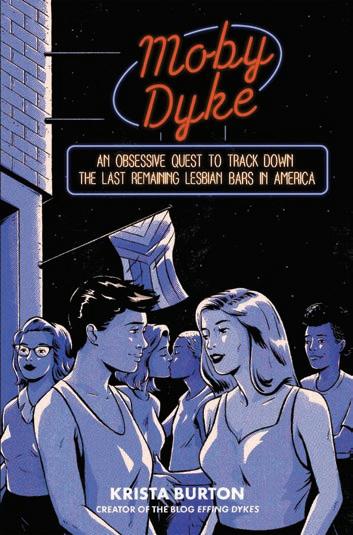 By TERRI SCHLICHENMEYER
By TERRI SCHLICHENMEYER
The last stool on the left, over by the neon beer sign, is yours.
That’s your spot, the place where you can see almost the entire place. You hold court there, have a few drinks there, and you meet new friends. On that stool, you’re among your people but enjoy it while you can: In “Moby Dyke” by Krista Burton, your seat is in a dwindling place.
A few years ago, toward the end of the pandemic, masking, and lock-downs, Krista Burton was asked what she missed most. Her answer was a surprise: she longed to be in a crowded “dyke bar,” shoulder-to-shoulder with people like her.
Dyke bars. Wouldn’t that make a great subject for a book?


Burton found an agent but then she found bad news: supposedly, there were just 20 lesbian bars left in the entire country.

Not wanting to miss an opportunity, and with book contract in hand, Burton began planning roadtrips. It was, she said, “the gayest possible dream project.”
She began in San Francisco at “the oldest ... lesbian-founded, owned, and continuously operated bar” there. From her home in Minnesota, she flew to New York City to visit two lesbian bars. A visit to a San Diego bar was wrapped up with a friend’s wedding.
Burton’s husband, a trans man, loved the football atmosphere in a Milwaukee lesbian bar. She caught a drag show in Indiana. Columbus, Ohio was “extremely queer-friendly.” She endured karaoke in Nashville, and she visited a cannabis dispensary while in Denver. Seattle was a place of nostalgia. She was mistaken for straight in Houston, was impressed by a real Dallas club, almost missed visiting a Mobile bar, wanted to quit when she was in Atlanta (but didn’t), then went to Phoenix and Richmond, imagined herself as a “senator’s gay wife” in Washington D.C., and she wrapped her tour up in Tulsa and Oklahoma City.
Once, Burton says, LGBTQ people were persecuted and arrested for dancing, drinking, and for being themselves in a public place.
“We could all go anywhere now.”
Just 20 lesbian bars? You’re giving that “Whaaaat?” squint, aren’t you?
It’s OK, author-blogger Krista Burton addresses that number at the end of “Moby Dyke” by writing with delight that since lock-downs ended, lesbian bars have rebounded.
She doesn’t address the bars she missed in the first place.
And yet, you’ll get the picture with the 20 she includes – in part, because, as she admits and as many bartenders and owners told her, lesbian bars aren’t just for lesbians anymore. To call a drinking establishment a “lesbian bar” ignores the diverse crowds, drag shows, quiet activism, and the inclusion that’s now offered alongside the fun Burton craved.
Don’t think this book is all about bar-hopping, either. It’s funny, with observations that are so sharp, they’ll cut you, and it’s part memoir that’ll hurt your heart.
Yes, there are omissions in this book but what’s here overshadows what’s missing. If you want a funny memoir-in-a-bar, grab “Moby Dyke” and pull up a stool.

If you’d told me that I’d get as much of a kick out of sonnets inspired by the Periodic Table of Elements as Cole Porter got from Champagne, I would have thought you’d had too much bubbly. Until I read “Periodic Boyfriends,” queer poet and writer Drew Pisarra’s intriguing new poetry collection.
With his sleight of hand, Pisarra puts all of us, chemistry lovers and naysayers, under his spell.

“Periodic Boyfriends” is a collection of sonnets inspired by queer love and the periodic table of elements.
Pisarra writes sonnets that Shakespeare, who some scholars think was queer, would, I’d wager, have enjoyed reading with his BFFs.
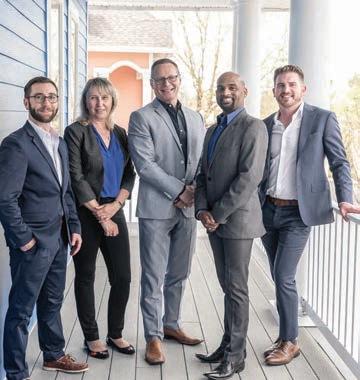
Each of the witty, sometimes poignant, nearly always captivating, sonnets in “Periodic Boyfriends” is titled with the name for an element in the periodic table (such as the poems titled “Hydrogen,” “Boron,” “Lithium” and “Palladium”).
The sonnets riff off Pisarra’s one-night stands, cybersex encounters and memories of queer men who’ve died.
Through his poetic alchemy, Pisarra makes you see why combining queer eros with periodic elements isn’t an obscure mystery.
Chemistry as defined by the “Oxford English Dictionary,” is “the complex emotional or psychological interaction between two people,” Angie Morrill notes in the introduction to “Periodic Boyfriends.”

Chemistry contains the elements – from silver to tin to gold – that make up the world.
Pisarra’s sonnets illuminate how his one-night stands are immersed in chemistry (in all senses of the word). He uses the periodic table of elements to track his erotic encounters with
more than 118 men.
If anyone else tried this, it would likely be a snooze. After the sonnet about the 50th boyfriend, the reader might well wonder: are we there yet?
But, there are no worries with Pisarra. In the tight form of the sonnet – in just 14 lines – Pisarra presents a narrative with as many twists and turns (infused with irony, snark and tearing-up moments) as a compelling novel or must-binge-watch TV show. You can’t wait to turn the page or watch the next episode.
Pisarra, 58, decimates the image of the poet as an ethereal bard nesting in the clouds — sipping the nectar of the angelic gods.
You can tell from just a line of his poetry that he isn’t based on Mount Olympus. Pisarra, who grew up in Silver Spring, Md., now lives in New York.
“Periodic Boyfriends” is steeped in the images, music, and beat of New York City streets and queer culture (with some literary, but not pompous, allusions tossed in the mix).
“You occupy a space inside my skull/though who gave you access I’ve not a clue,” Pisarra writes in “Polonium,” a sonnet addressed to one of his boyfriends from the past. “The ache’s persistent, illogical, dull./Your thermal imprint’s one I can’t undo./”
Pisarra’s sonnets often joyfully combine the everyday language of love and insults. “Calling the ugliest lay from my past./,” he writes in “Dubnium,” “Guess what, babe. You rocked. That night was a blast.”
The poems in “Periodic Boyfriends” will pop for readers, queer and hetero. But there’s no way of missing (who would
want to?) that these sonnets are immersed in a queer sensibility.
“You lived next door! I heard” Pisarra writes in “Rutherfordium,” “you were a hairdresser from Ecuador/(the last queen to top me in Baltimore).”
Pisarra uses the tight form of the sonnet and his playfulness and wit to speak not only of dancing, and “the hate fuck” but of more somber parts of life (and death) from becoming sober to suicide.
152 pages
In the “Lanthanides,” a series of sonnet-like poems (that tamper a bit with the structure of a sonnet), Pisarra turns elegiac. In these poems, he writes sometimes playfully, sometimes wistfully, by turns, poignantly about LGBTQ men who have died. “Uncle Jimmy had a lover. Sadly/” he writes in “Lanthanum, “for Uncle Jimmy and my dad)”, “no one knew his name.”
Another sequence of poems, “The Actinides,” is about Pisarra’s online sexual encounters. Accounts of cyber trysts are rarely such fun.
Check out “Periodic Boyfriends.” It’s like hanging out on a summer’s night with the acclaimed queer poet Frank O’Hara and Dorothy Parker.



OUR OUTSIDE BIERGARTEN IS OPEN!


PARGELZEIT IS UPON US AKE YOUR RESERVATIONS NOW TO GET YOUR WHITE ASPARAGUS FIX M GETYOURWHITEASPARAGUSFIX

DINNER: LUNCH:
HH:

WED-SUN 3-10PM

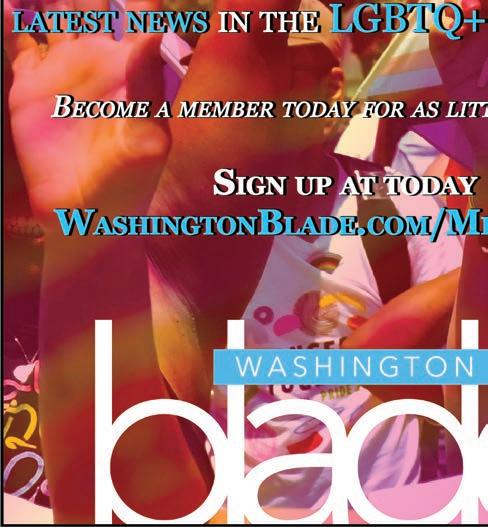
WED-FRI 11:30-2:30PM
WED-FRI 2-6PM





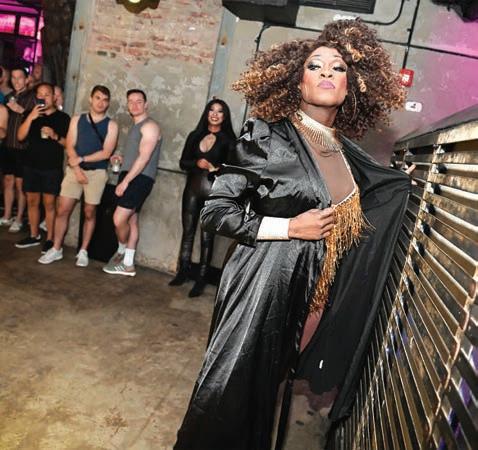





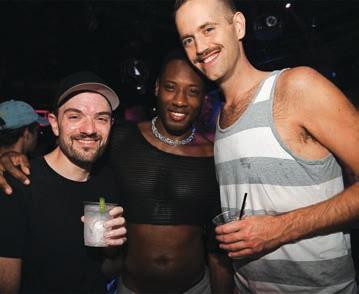

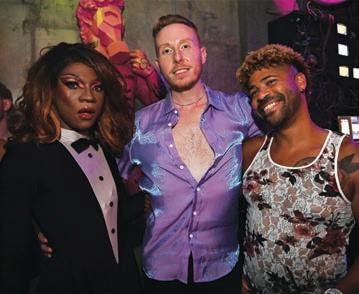


























It’s that time again. Children of all ages are going back to school. You wave goodbye as they trudge to the bus stop or perhaps you participate in the carpool drop-off. If they’re older, you cross your fingers every time they get in “that friend’s” car.

The house may feel empty after a long, hot summer, but once the children get home, they will need space that fosters the focus and organization necessary for reading, studying, and completing homework assignments.
Assess your home to see whether a spare room, a corner of a playroom, or even a well-organized section of the bedroom will do. The goal is to establish a designated area where the child can engage in various educational activities.
This workspace should be away from noisy areas of the house, allowing children to immerse themselves in their assignments without disruptions. A quiet and well-lit space is essential and a clutter-free desk or table with ample lighting helps minimize distractions.
Furniture and storage are essential components of a functional learning center. Invest in child-sized desks. Shelves, cabinets, and storage bins can be used to neatly organize books, supplies, and learning materials. If you have space to customize a built-in workspace, such as under a staircase, in a section of a loft, or in a finished basement, there are lots of options from custom closet companies.
Aesthetics also matter and color can be a great motivator. Companies like MOORECO, Inc. have studied the association of certain colors with educational success. You can review their blog post, 5 Colors in The Classroom That Will Boost Active Learning, at their website.

For example, green is a good color for long-term concentration. Orange, in small doses, can be mood-lifting and promote an increase in attention levels (although they caution that it may be overstimulating for small children). Blue can be a calming and relaxing color and can increase productivity. Educational posters and interactive displays
can make the learning center more inviting and exciting.
In addition to the physical setup, access to necessary resources is crucial. A reliable computer and internet connection will help with online classes and research materials. Equally important is a comfortable, ergonomic chair so your son or daughter can sit for extended periods without straining their posture or eyesight.
But what about the parents?
Most adults have not yet returned to the office environment full-time, so many of the make-shift home offices we established on dining room tables during the pandemic are still in use. The challenge is to upgrade to a work-at-home environment if your space is limited.
A good office set-up for adults is not that much different from one for children. Once you’ve chosen the location, focus on creating an ergonomic set-up that gives you privacy for online meetings, good lighting, esthetically pleasing surroundings, and space to accommodate computers, printers, and other office necessities without over-cluttering.
Find a comfortable chair that supports your posture and allows for extended periods of work without discomfort. Your desk should be at a suitable height to prevent strain on your wrists or back. Perhaps a standing desk is to your liking, or a telescoping desk that allows you to switch between sitting and standing.
Personalization is key to making your home office a place where you enjoy spending time. Decorate the space with items that motivate and inspire you, such as artwork, plants, or meaningful objects. This is the place where your “I Love Me” wall is a welcome addition and your diplomas, certificates, and awards can be displayed.
A corkboard or whiteboard can be useful for jotting down ideas, reminders, or showing progress on Gantt charts. The color scheme in your home office is as important for you as it is for your child and the science of color applies here as well.
If you participate in online meetings, check out How to Zoom Your Room: Room Rater’s Ultimate Style Guide by Claude Taylor and Jesse Bahrey for suggestions on making your office space look more professional. (Note: If you think you might have to leave the room during a meeting, be sure you are wearing pants before you stand up.)
Ultimately, a well-designed home office should reflect your personality, optimize your productivity, provide a space where you can comfortably tackle your work, and yes, be close enough to your child’s learning center that you can respond to a cry of, “Dad, I need help with my math homework.”

is a licensed Associate Broker in D.C., Maryland, and Virginia with RLAH Real Estate / @properties. Call or text her at 202-246-8602, email her via DCHomeQuest.com, or follow her on Facebook at TheRealst8ofAffairs.


(StatePoint) — Building wealth is not as easy as it sounds. It can take time, discipline and a plan to keep those dollars protected. However, if done correctly, it can provide security for your family for years to come.

No matter where you are in your personal financial journey, there are steps you can take to help build a financially secure future. Although your approach should be personalized to your specific situation, Freddie Mac suggests building your plan on three main pillars: accumulate, preserve and protect what you’ve built.
The first, and one of the most challenging steps, is saving for your future while covering basic expenses. Establishing and working toward defined financial goals in the short-, medium- and long-term is a good place to start. Also, understanding your money mindset can help you identify opportunities to create healthier spending and saving habits.
Over time, it’s important for you to position yourself to take advantage of opportunities to raise your income. Consider discussing a raise with your current employer, taking a job opportunity with higher pay or starting a side business to supplement your income. You should also begin to build an emergency fund, which will better position you to weather unexpected financial emergencies. In general, you should save enough in this fund to cover three to six months of your typical monthly expenses.
In addition, if you are financially prepared for it, purchasing a home can help you build wealth in ways that
renting cannot.
Once you’ve begun to accumulate wealth, the next step is preserving it. You can accomplish this by protecting and growing your money over time. Managing your debts and expenses is paramount. Pay down debts in high-interest accounts and prioritize other expenses that require immediate attention. Your credit score is a critical part of this equation, and
the time to improve it is right now. A strong credit score can help you receive a better interest rate and loan terms when working with lenders, as well as provide a host of other long-term benefits.
Lastly, you should have a plan in place to eventually transfer the wealth you’ve built to family and loved ones.
CNBC reports that an estimated $68 trillion will be passed down from the baby boomer generation between 2019 and 2044. Having an estate plan can give you peace of mind that your assets will be allocated according to your wishes when the time comes.
In the meantime, you should also protect your assets from the unexpected. In addition to taking steps to safeguard your property from natural disasters, you should invest in a comprehensive renter or homeowner insurance policy. And always be mindful of the wide variety of scammers and hackers looking to access your resources.
Education has power. As you begin your journey, you can build your financial savviness with Freddie Mac CreditSmart Essentials, a suite of free education tools and information covering topics like how to buy a home or car, how to improve credit and how to build wealth. To learn more, visit creditsmart.freddiemac.com.
Building wealth doesn’t happen overnight. With consistency and commitment, and the right knowledge and mindset, you can create a stable future for you and your loved ones.
(StatePoint) — Even as minority business owners face new economic challenges, including supply chain disruptions and inflation, results from PNC’s recent Economic Outlook survey show an impressive resiliency and positive mindset among these business leaders, according to Marshalyn Odneal, national sales executive for Minority Business at PNC Bank.
According to PNC’s survey, more than two-thirds (68%) of minority business owners feel highly optimistic about the prospects of their own company in the next six months, compared to just 60% of non-minority-owned businesses.
While business owners as a whole remain cautious about the national economy, the gap between optimism among minority business owners for their own company versus the broader U.S. economy is 40 percentage points, significantly higher than the 31-point difference among non-minority owners.
“I have no doubt that minority business owners who were able to manage through the pandemic had to make unprecedented decisions related to staffing, business models and pricing. In doing so, they faced a Goliath – and won. It’s unsurprising that their mindset about the future of their businesses, despite current economic challenges, is optimistic,” Odneal said.
According to PNC’s survey, 65% of Black- and Hispanic-owned business owners stated they have a business plan suited to the current direction of the economy, significantly more than non-minority owned businesses (55%). This highlights the importance of access to crucial resources for these business owners. The survey reinforces this point, showing that 86% of Black- and Hispanic-owned businesses interacted with or leveraged resources from the Small Business Association (SBA), a local chamber of commerce or a community economic development organization. Only 69% of non-minority business owners reported doing the same.
“The truth is that the unique financial challenges minority-owned businesses have long faced were amplified during the pandemic. As a result, more minority business owners are now seeking Minority Business Enterprise (MBE) certification, which is also an important and needed resource,” Odneal said.
Businesses that become MBE-certified gain exclusive access to premium networking events, affordable consulting services and technology programs, among other benefits, according to the National Minority Supplier Development Council.
“Our survey revealed that 87% of Black-owned businesses are now MBE-certified, up from 69% last
year. Three-quarters of Hispanic-owned business are MBE-certified, compared to 67% last year. Of MBE-certified businesses, 80% of Black- and 84% of Hispanic-owned businesses said that certification has been a helpful business development tool,” Odneal said.
PNC has taken significant steps in doing more for minority-owned businesses and providing necessary resources to help them overcome roadblocks.
As a part of its Small Business organization, PNC’s Minority Business Development Group’s mission is to deliver solutions and resources that foster financial wellness for small businesses within diverse communities. They’ve been able to do this, in part, through the PNC-Certified Minority Business Advocate initiative, a voluntary advocacy program that helps PNC employees understand the challenges facing minority-owned business owners.
“If the optimism of these entrepreneurs is realized and the U.S. business landscape prospers further down the road, minority business supporters must continue to execute against their mission and accelerate their efforts. The outlook is bright, but we must continue to do our part to advocate for these entrepreneurs and help their communities thrive,” Odneal said.
faced

A statement from Vibrant showed that the average time on hold had risen slightly, from 34 seconds to 36 seconds, despite the addition of six more centers taking calls. The Blade’s query on Trevor’s community platform, TrevorSpace, asking whether people had experienced longer hold times on the 988 hotline was deleted by administrators. The administrators cited “inappropriate promotion” as a reason and issued a warning.
An automated message checks in on those waiting on hold, but kids “in a truly acute mental health crisis” won’t wait and won’t respond to automated prompts, a source told the Blade.
The six new organizations running the LGBTQ+ youth hotline, CommUnity, EMPACT-Suicide Prevention Center, Solari, Inc., Centerstone of Tennessee, Inc., PRS CrisisLink, and Volunteers of America Western Washington, aren’t well known in the tight-knit LGBTQ+ advocacy world. From what Depriest has been able to tell, it hasn’t been going well.
“Their resources are not helpful, and they’re not very personable,” Depriest said. “They don’t have the trauma-informed training that we have had to take. And you could tell a big difference.”
Lance Preston, who runs the small LGBTQ+ crisis organization Rainbow Youth, pointed specifically to the Volunteers of America Western Washington organization. He said his organization has attempted to place homeless youth at their facilities across the nation but has had many issues. Preston declined to elaborate.
In a statement, a Vibrant spokesperson said that each call center must submit their LGBTQ+ competency training program for approval. Each backup center, according to Vibrant, has “similar training requirements’’ and access to the same training support. Vibrant also announced a two-year program to improve staff training.
But Mitchum, Trevor’s former director of advocacy and government affairs, who was intimately involved in the rollout of 988’s LGBTQ+ hotline, told the Blade that more providers for the line is a good thing.
“The people you talk to may say that it’s negligent to have these orgs who have no services, a lack of training, allegedly,” he said. “But why can’t they build them out? If Trevor actually cares about LGBTQ youth, not just their organization, why can’t they support these organizations, and build out these trainings that they say are best in class?”
Issues concerning the organization’s diversity have cropped up, including during Trevor’s expansion to Mexico. Instead of hiring a translator, it asked Latinx staff to translate material into Spanish, Vargas, the former New York office manager, said. Another Latinx former staff member said the group was treated as a monolith. The entire group were congratulated on Mexican Independence Day – even though not all the Latinx staff were Mexican-American.
Mitchum told the Blade decision makers at Trevor never took the diversity concerns seriously. Weaver, former vice president of marketing, said the Trevor Project was more focused on checking boxes and performative diversity.
CEO Rajski said that the organization is committed to diversity in a statement Trevor sent to the Blade.
“Over the years, I’ve seen the organization I started, flourish and adjust to the changing needs of LGBTQ young people and shifting our outreach efforts to highlight the needs of the most marginalized LGBTQ young people — including young people of color and transgender and nonbinary young people.”
These and other concerns led to the Friends of Trevor Unit-
ed union being formed in early 2022. That process was far from easy. Trevor did not immediately recognize the union, instead asking for a card count, where employees sign union authorization cards. A Trevor Project spokesperson said the organization recognized the union voluntarily – which is true, but insisted that a “wide margin” of cards support Friends of Trevor.
Gloria Middleton, president of the Communications Workers of America Local 1180, under which Friends of Trevor is organized, said Trevor opposed the union. While union organizers were in talks with Trevor, the organization began laying off workers. The union condemned that, calling it “union busting,” and said that Trevor intentionally gave the union very little time to respond.
Trevor provided Friends of Trevor with a formal layoff plan on June 29, according to a union Instagram post. The union did not post anything about the layoffs publicly until July 6 – layoff day. A Trevor Project statement said it notified the union on May 31, but Middleton said it was only informed on June 16 and the information did not include information about the timing, scope, and impact of the layoffs.
Some asked if the layoffs were retribution for the formation of the union. The Trevor Project strongly denies this, pointing out that it laid off both workers in the union and non- union employees. The union, though, questions why Trevor announced layoffs during the negotiations and not before.
“With an employer, there’s nothing in the law to my knowledge that says they can’t lay off at any time, to my knowledge,” Middleton said. “It’s just about the way it looks.”
Current and former staff told the Blade that Trevor targets dissidents, the employees that speak out against leadership. Vargas, who wrote a letter of solidarity to staff that spoke up about their mistreatment? Laid off. Josh Weaver, who is Black and spoke about having staff satisfaction data stratified by race and gender and amplified staff concerns? Laid off, though before the July layoffs. And many more, employees say.
“If I were white, I would have had a second chance. I’m certain of it,” Weaver said. “If I were a white person, I would have gotten a reprimand. I would not have been in the same situation.”
The staff who spoke on condition of anonymity with the Blade were worried about retribution as well – even those who no longer work at Trevor. A message the Blade received through a secure dropbox sums it up well:
“Thank you for doing this. I wish I could talk to you without losing my job,” the text document submitted reads. “Give them hell.”
Even Trevor Project co-founder Celeste Lecesne slammed the organization in a statement last month released by the Communications Workers of America.
“When I co-founded The Trevor Project, I did so to create a resource for LGBTQ+ youth who are struggling to express their identity and feel accepted in a world where being gay or trans can feel terrifying. The Trevor Project is about supporting each other, and to see the way these workers have been treated by management – for engaging in their right to organize – is appalling and completely unacceptable,” said Lecesne, who no longer works for the organization. “The workers being targeted have saved lives and helped countless members of the LGBTQ+ community feel heard. It’s time that management hears these workers and joins them in their fight to create a more equitable workplace.”
In a statement to the Blade, the Trevor Project said it takes its obligation not to retaliate against employees seriously.
“We have a strict anti-retaliation policy, which The Trevor Project upholds, and retaliation in violation of any law or policy is not permitted.”
Middleton said that while Trevor’s behavior is terrible, it’s not unusual. Major nonprofits with good missions become corporatized and start treating their workers poorly.
“They run the companies like most American companies run,” she said. “The bosses get the money, the workers get the minimal amount of income, just do the job.”
Indeed, former CEO Amit Paley made $473,969 between August 2021 and July 2022, according to Trevor financial documents. Meanwhile, fewer than half of employees said they received a fair salary in the survey, according to a copy the Blade has seen.
Not only do staff say they are not paid a fair wage, they say they must work under an executive that does not seem to care about the mission.
“Peggy created this organization in 1998 on the heels of a movie that was about a white, cisgender gay boy,” said Weaver, the former vice president of marketing. “And I think the aspect of queerness and its multifariousness today is something that Peggy does not want to really jibe with.”
Rajski had to be “pulled up” to include messaging about transgender and nonbinary people, a source said. Within the organization, Mitchum said Black staff weren’t promoted like others, nor were they paid as well. This is “actively the issue” inside Trevor, he added.
In a statement provided by a Trevor spokesperson, Rajski acknowledged she doesn’t always “get it right.”
“The gift of being part of Team Trevor is being able to serve, learn from, and grow with some of the most talented mission-focused leaders and staff,” she said in the statement. “I have recognized deeply how critical the need is in the LGBTQ community to have supportive and affirming allies — and how to be that kind of ally in new and better ways.”
She presents herself as an ally in the statement and in other public appearances. She called herself the “straight, white, godmother of a gay suicidal hotline,” in an interview with NPR affiliate KCUR in Kansas City, prompting ridicule among staff. But it pointed at a larger issue, employees told the Blade: Trevor’s C-suite is almost entirely white and cisgender.
“I think there needs to be a permanent CEO who is LGBTQ+,” Mitchum said. “And in my opinion, one who is a person of color, or at least someone who actively understands intersectional framework and how to have these culturally important clinical conversations of competence and responsibility to specific communities.”
In the meantime, though, Trevor is led by a straight, white, cisgender woman. Current and former Trevor employees are scratching their heads over how to treat Trevor. Mitchum said that Trevor “has enough of your money” in a tweet and suggested donating to other organizations instead. Others aren’t quite sure.
“It is kind of a fine line with me right now, do I say support the Trevor Project because all these young people are calling in?” a former mid-level employee asked in an interview. “Or do we support other organizations? But this happens all the time. It isn’t specific to Trevor.”
“It’s heartbreaking. It’s heartbreaking to see,” Weaver said. “But what can you do? The one lesson that I learned was that at the end of the day, you’re the purpose, it’s not the organization. The mission sticks with the people. And so if the Trevor Project is not going to do it, somebody will.”
Rajski said in a statement that she is committed to supporting the most marginalized LGBTQ+ youth, including transgender and nonbinary youth as well as youth of color.
“I have heard firsthand through the voices of our people that we can do more to help them thrive and do their best work,” she said. “We have listened and are making important investments in our people, our culture, and organizational infrastructure to help Trevor be a sustainable force for good.”

Massage for active adults. Private studio near Rosslyn. Fri-Mon, 12-8. text 301-704-1158 or visit http://www.mymassagebygary.com

BODY & SOUL
NEEDLING
Doesn’t your face deserve Holistic Micro Needling?
Check out our Deluxe Micro Needling in Bethesda! —Soften Wrinkles & Fine Lines; Reduce Age Spots & Acne Scars; Smooth Skin; Boost Collagen!
—4 to 6 Monthly Treatments recommended. Sessions feature Motorized Micro Needling Plus Face Massage, Tuning Fork Vibrations, Hot Towels, Quality Serums, LED Age-Reducing Light and Loads of ZEN! Free Consults!
https://thezenpoint.com/ Phone: 301-264-8574

BULLETIN BOARD
Academy of Hope
Adult Public Charter School
REQUEST FOR PROPOSALS
Hope Forward Program Management
The Academy of Hope Adult Public Charter School located in Washington, DC requests proposals for Hope Forward Program Management. Proposals are due August 16th, 2023. You can find the detailed request for proposal and submission information at https://aohdc.org/get-involved/jobs/
BULLETIN BOARD
Academy of Hope
Adult Public Charter School
REQUEST FOR PROPOSALS
Hope Forward Program
The Academy of Hope Adult Public Charter School located in Washington, DC requests proposals for Hope Forward Program. Proposals are due August 16th, 2023. You can find the detailed request for proposal and submission information at https://aohdc.org/get-involved/jobs/
BULLETIN BOARD
Academy of Hope
Adult Public Charter School
REQUEST FOR PROPOSALS
Transportation Contractor
The Academy of Hope Adult Public Charter School located in Washington, DC requests proposals for Transportation Contractor. Proposals are due August 31st, 2023. You can find the detailed request for proposal and submission information at https://aohdc.org/get-involved/jobs/
CLEANING
FERNANDO’S CLEANING
Residential & Commercial Cleaning, Reasonable Rates, Free Estimates, Routine, 1-Time, Move-In/Move-Out 202-234-7050 / 202-486-6183

HANDYMAN
Local licensed company with over 25 years of experience. Specializing in bathrooms, kitchens & all interior/exterior repairs. Drywall, paint, electrical, wallpaper, roofing & siding


Trevor 703-303-8699
LEGAL SERVICES
ADOPTION, DONOR, SURROGACY legal services. Jennifer represents LGBTQ clients in DC, MD & VA interested in adoption or ART matters. 240-863- 2441
JFairfax@Jenniferfairfax.com
LIMOUSINES
KASPER’S LIVERY SERVICE
Since 1987. Gay & Veteran Owner/Operator. Lincoln Continental Sedan! Proper DC License & Livery Insured. www.KasperLivery.com

202-554-2471
MOVERS
PROFESSIONAL MOVING & STORAGE
Let Our Movers Do The Heavy Lifting. Mention the Blade for 5% OFF of our regular rates. Call today 202.734.3080
www.aroundtownmovers.com
BODYWORK
THE MAGIC TOUCH
Swedish, Massage or Deep Tissue. Appts. Low Rates, 24/7, In-Calls. 202-486-6183
COUNSELING FOR LGBTQ




People Individual/couple counseling with a volunteer peer counselor. GMCC, serving our community since 1973.
202-580-8661
gaymenscounseling.org No fees, donation requested.
PLACE YOUR AD ONLINE AT WASHINGTONBLADE. COM/CLASSIFIEDS & YOUR AD PRINTS in the PAPER & ONLINE.*










